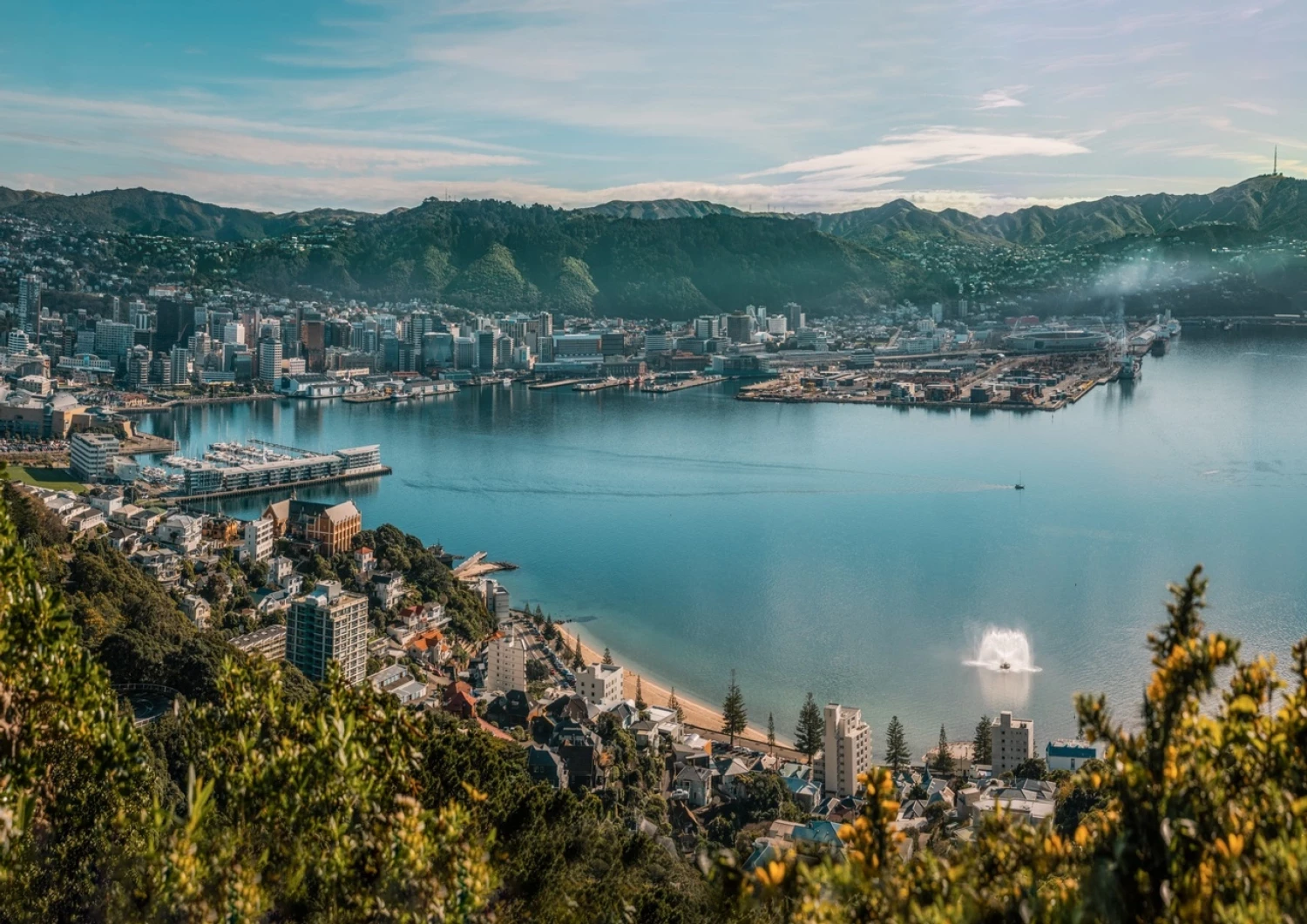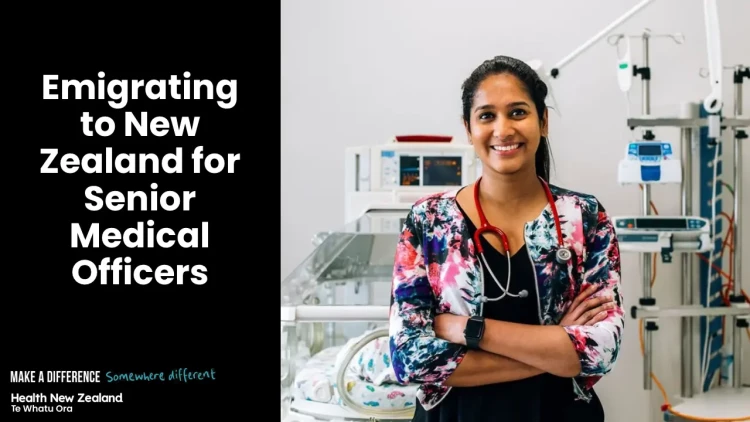- About Health New Zealand
- Locations
- Allied Health
- Midwifery & Nursing
-
Medical Officers
- All Senior Medical Officers (SMOs)
- Anaesthetists
- Dermatologists
- Emergency Medicine Specialists
- GPs & Rural Hospital Doctors
- General Medicine
- Obstetricians & Gynaecologists
- Oncologists
- Paediatricians
- Pain Medicine Specialists
- Pathologists
- Psychiatrists
- Radiologists
- Surgical Specialities
- Resident Medical Officers (RMOs)
- Specialist Teams
Home > Careers > Senior Medical Officers > Surgical Specialties

Surgical Specialties
Surgical Specialities in New Zealand include Cardiothoracic, Neuro, Oral and Maxillofacial, Orthopaedic, Otolaryngology, Paediatric, Plastic and Reconstructive, and Vascular surgeries.
Each of these fields requires highly specialised expertise to provide comprehensive care, from diagnosing and treating specific conditions to complex surgeries to ongoing patient management.
Photo location: Rotorua - Credit: Miles Holden
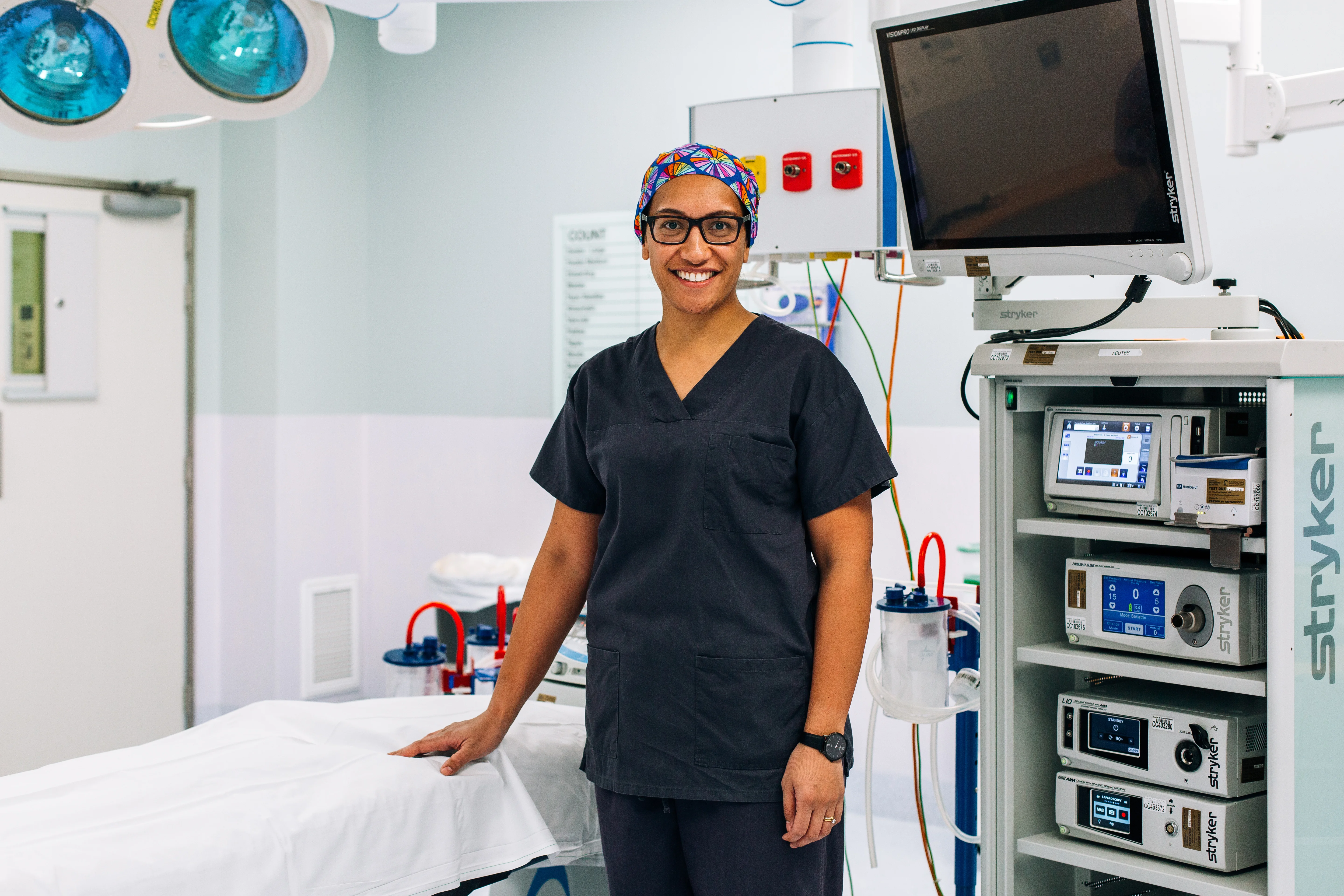
Cardiothoracic surgery
Diagnosis and treatment of conditions of the heart, lungs, and thoracic structures.
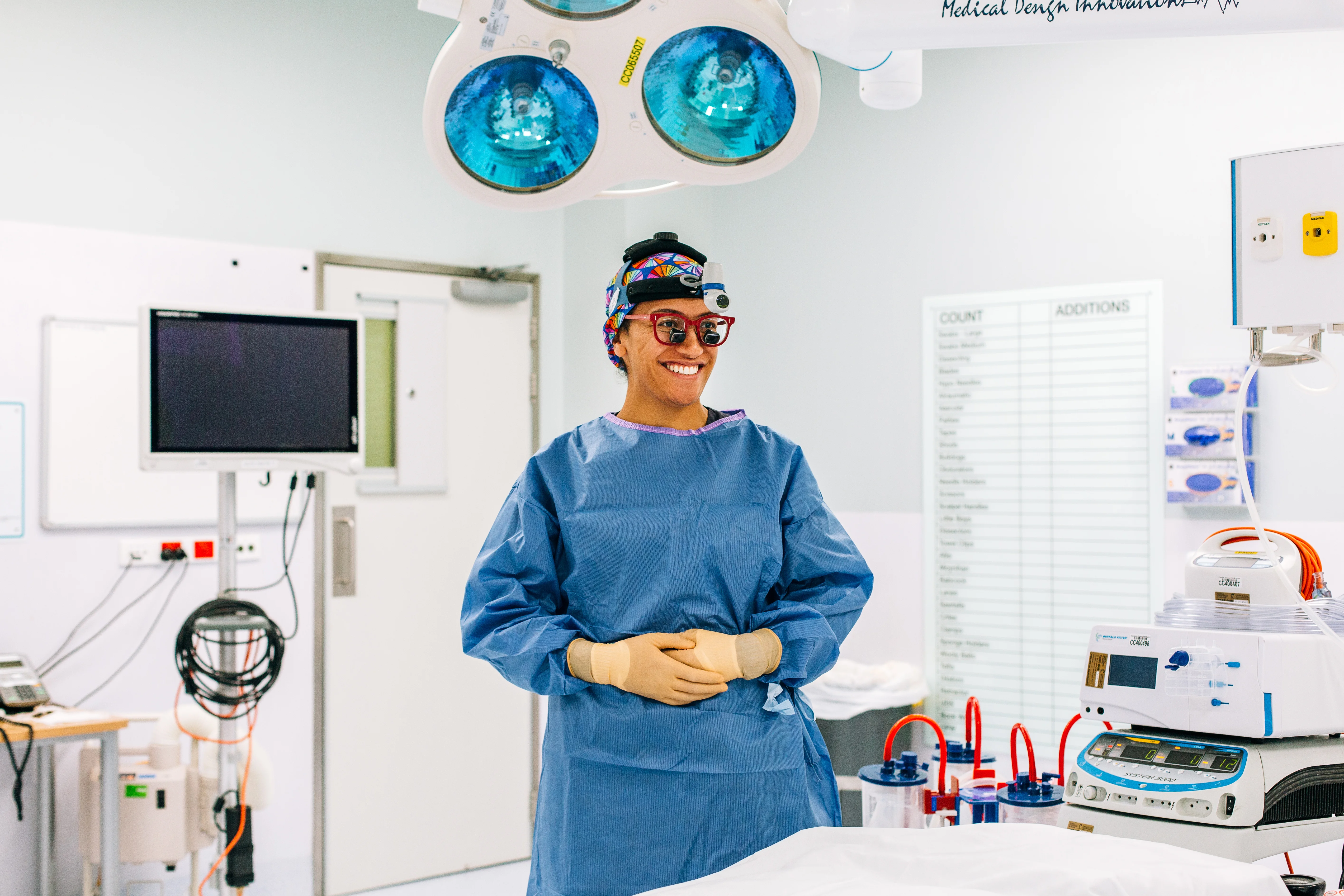
Neurosurgery
Diagnosis and treatment of conditions of the brain, spine, and nervous system through surgery.
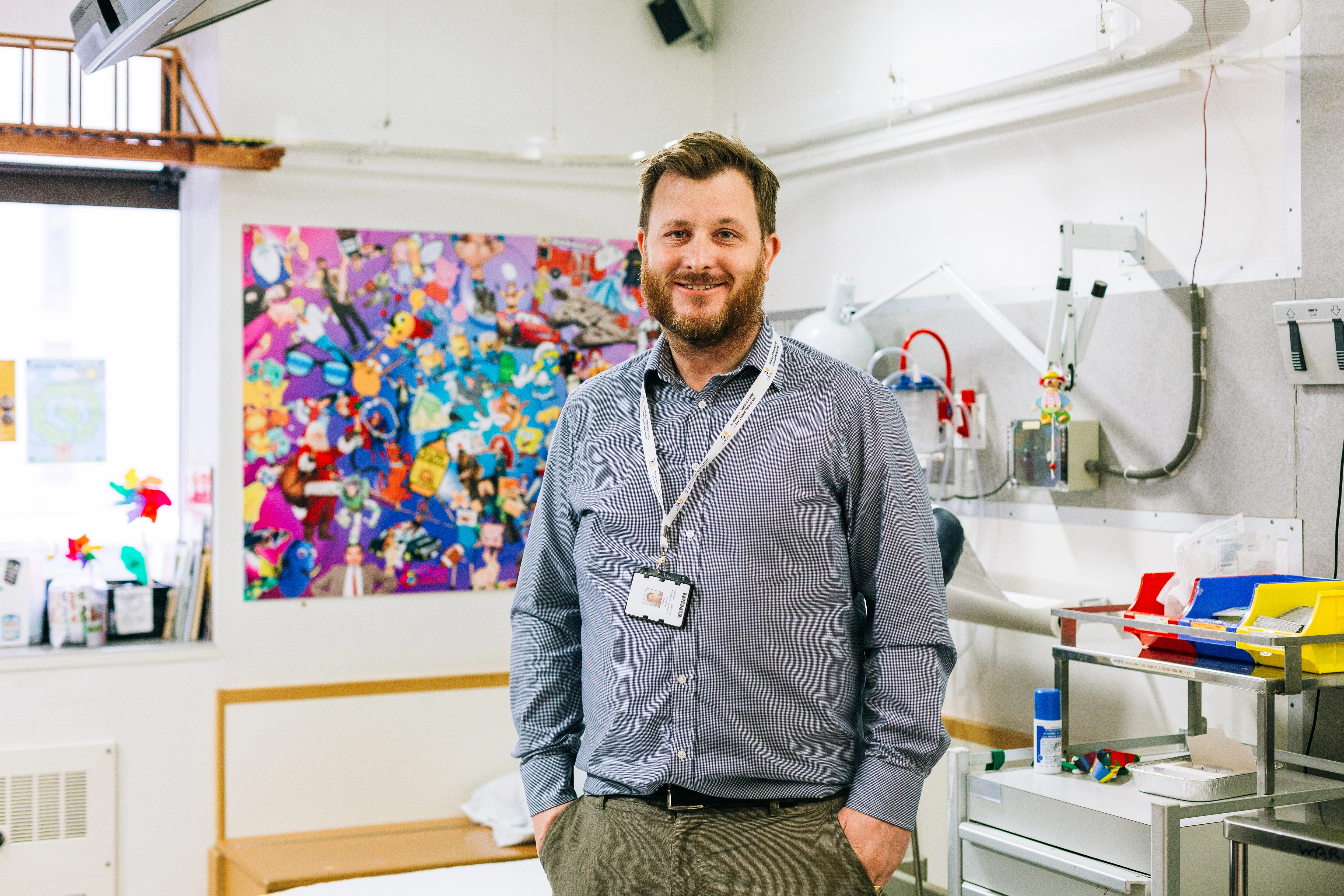
Oral & maxillofacial surgery
Diagnosis and treatment of conditions of the mouth, jaw, face, and associated structures.
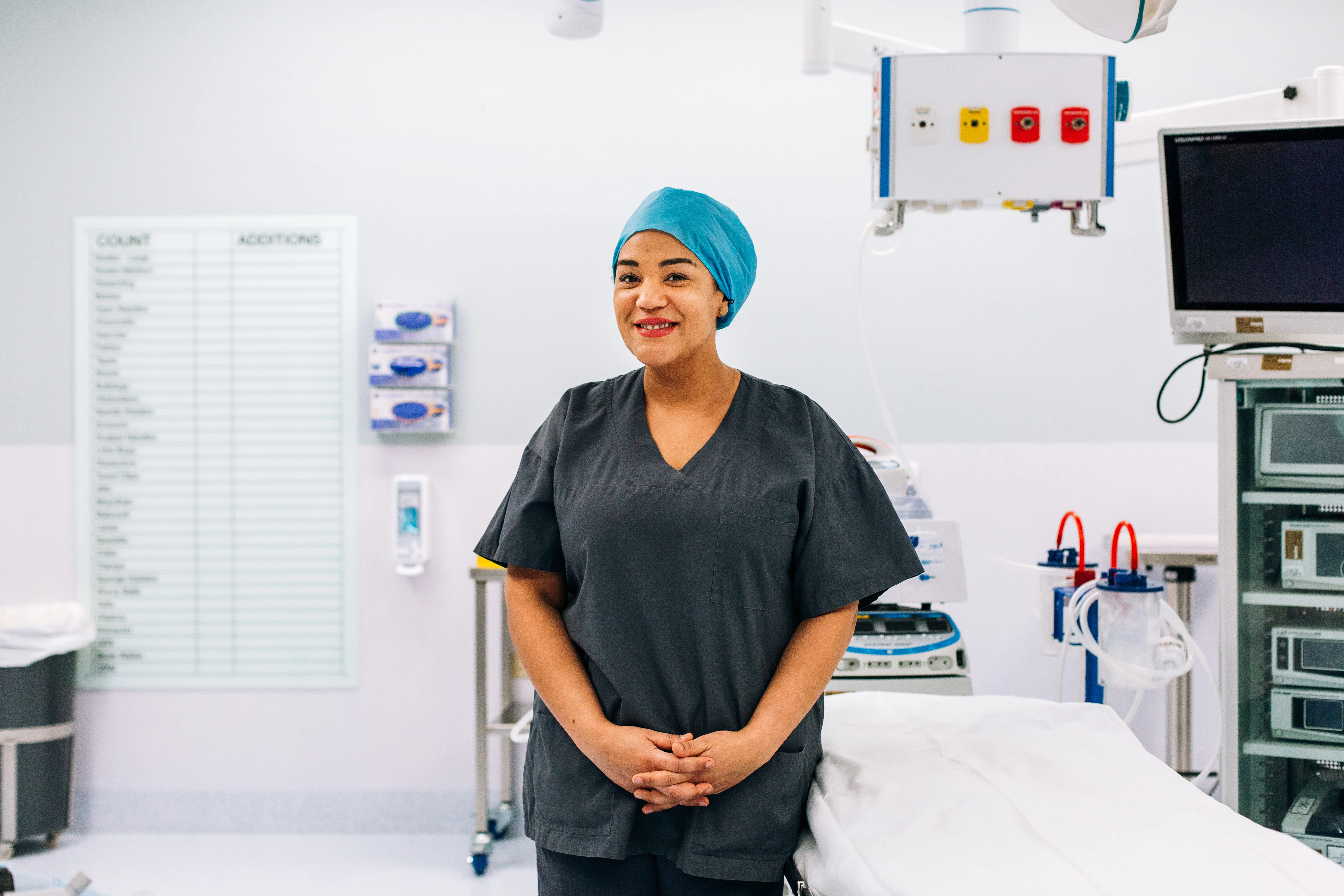
Orthopaedic surgery
Diagnosis and treatment of musculoskeletal conditions through surgical interventions, including fractures and joint disorders.
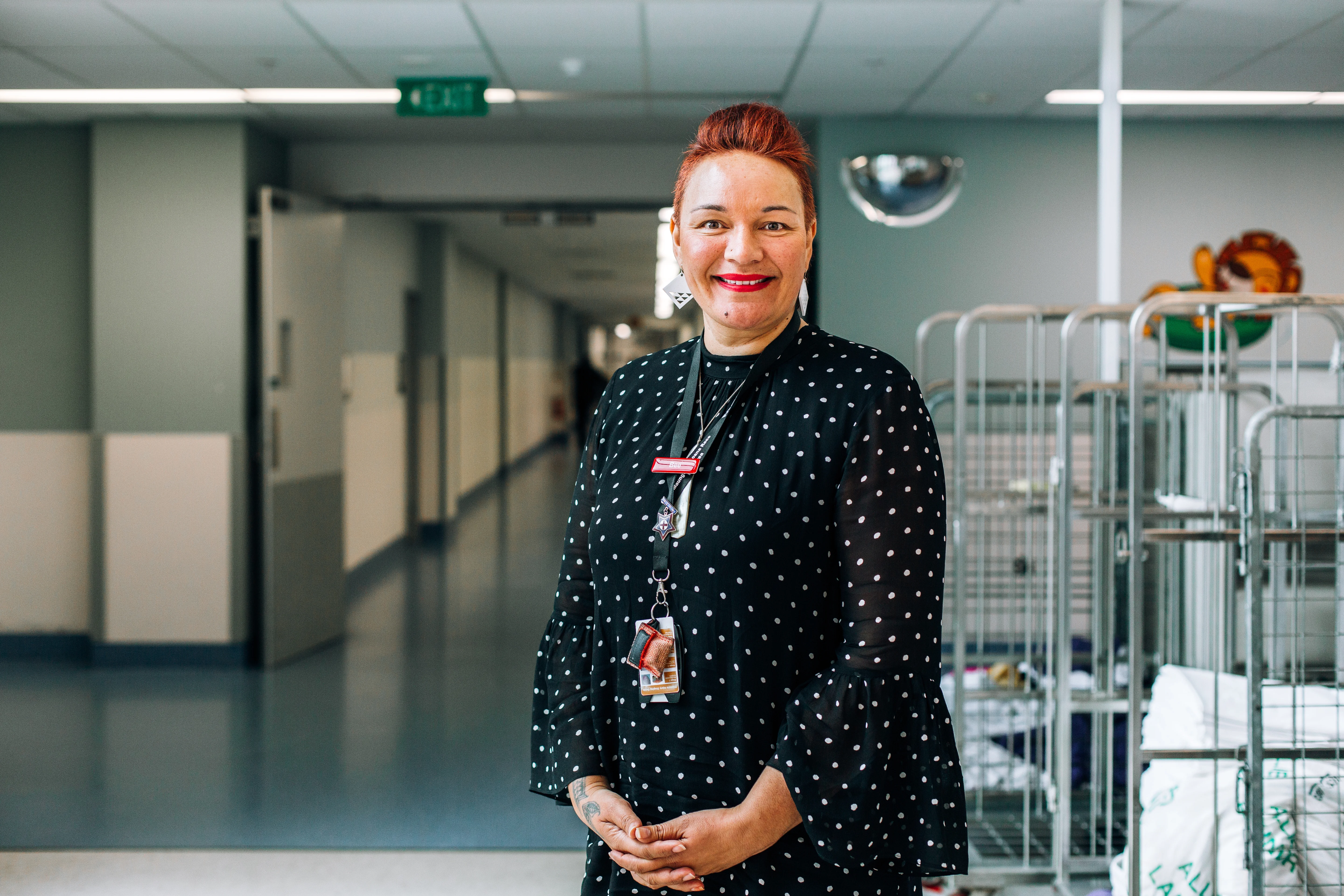
Otolaryngology, head & neck surgery
Diagnosis and treatment of conditions affecting the ear, nose, throat, and head and neck structures.
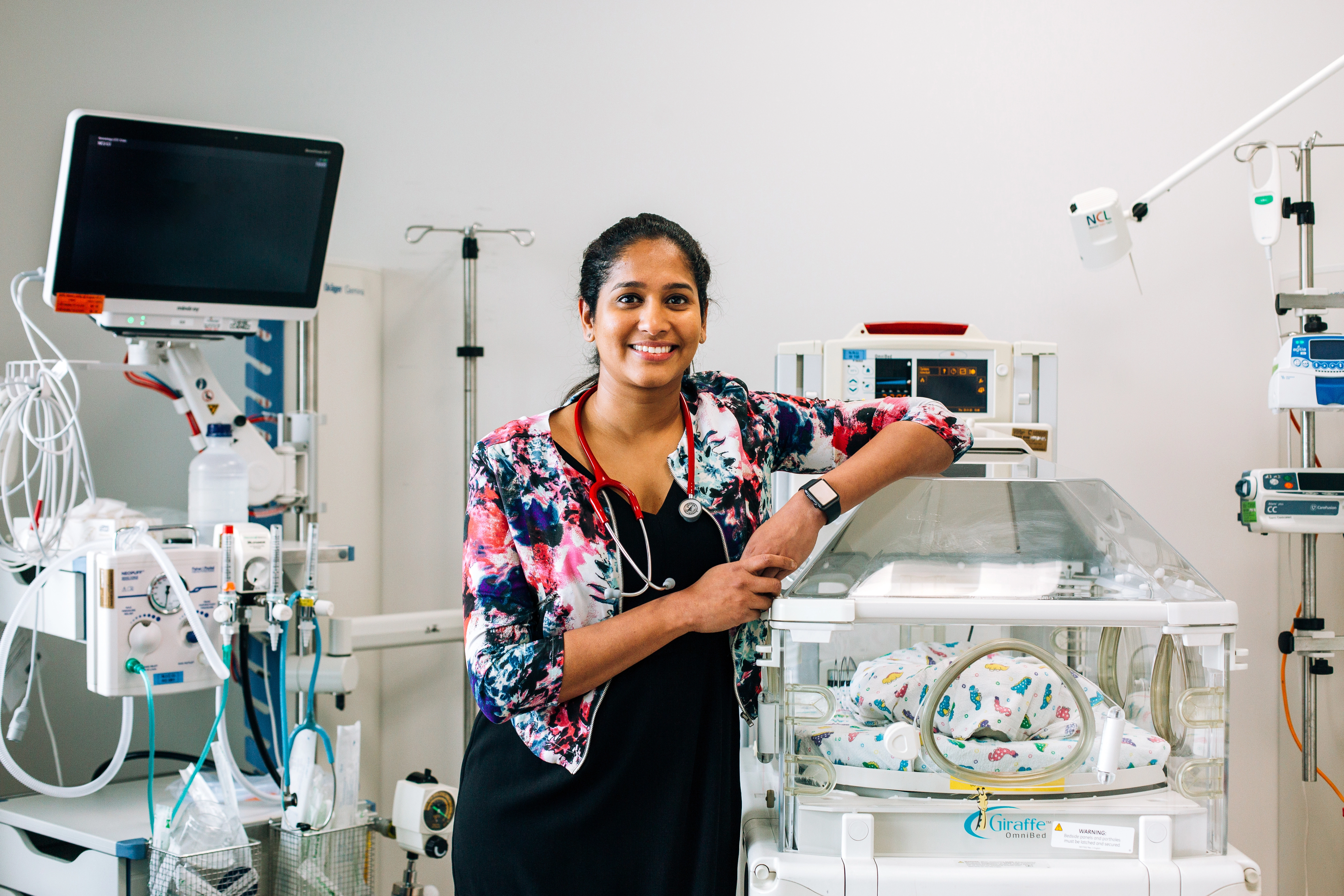
Paediatric surgery
Diagnosis and treatment of surgical conditions in infants, children, and adolescents, including congenital disorders.
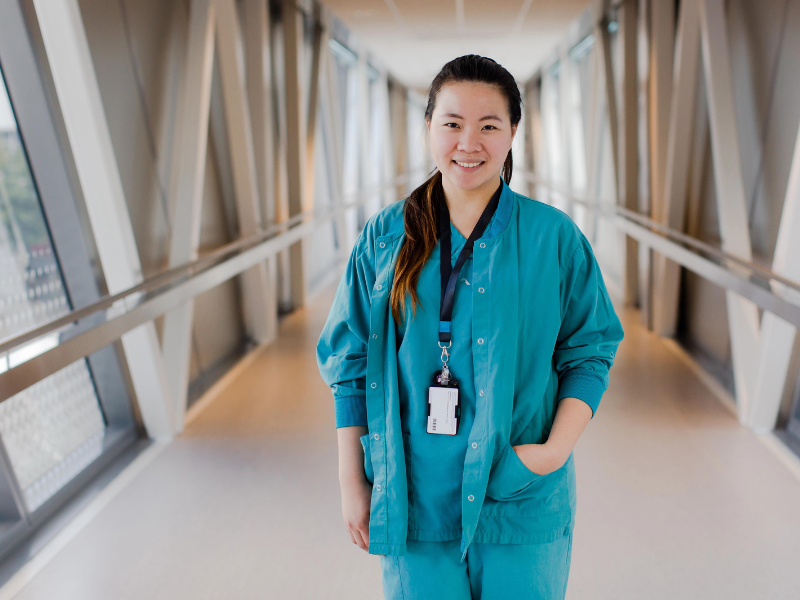
Plastic & reconstructive surgery
Diagnosis and treatment of conditions requiring restoration, reconstruction, or enhancement of form and function.
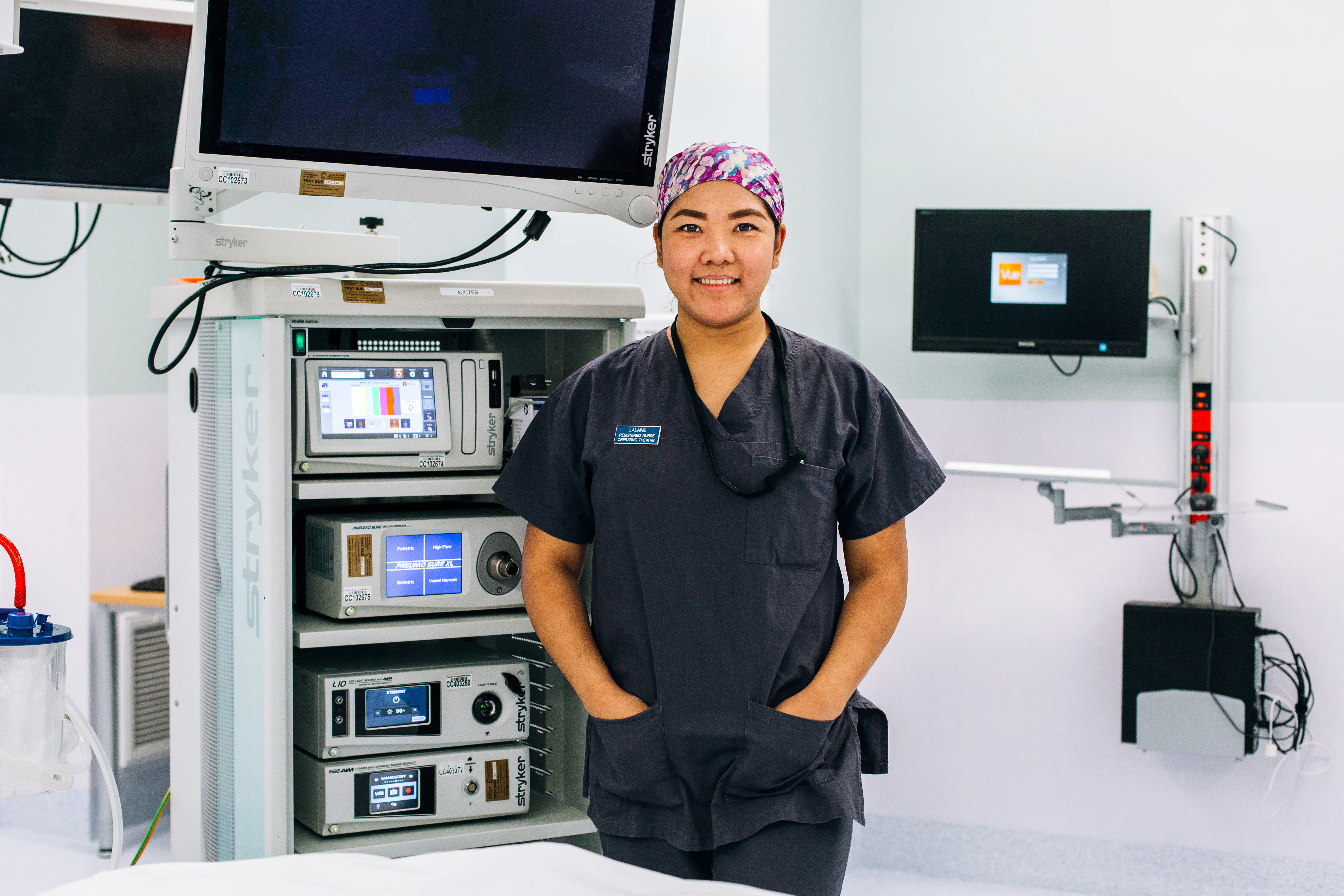
Vascular surgery
Diagnosis and treatment of disorders of the blood vessels, including arteries, veins, and lymphatic systems.
Cardiothoracic Surgery
As a Cardiothoracic Surgeon in New Zealand, you will work in a supportive and collaborative environment, partnering with multidisciplinary teams to provide high-quality, patient-focused care for complex heart and lung conditions.
We value innovation and professional growth, encouraging ongoing learning and leadership development as you refine your skills in advanced surgical techniques and contribute to improving patient outcomes.
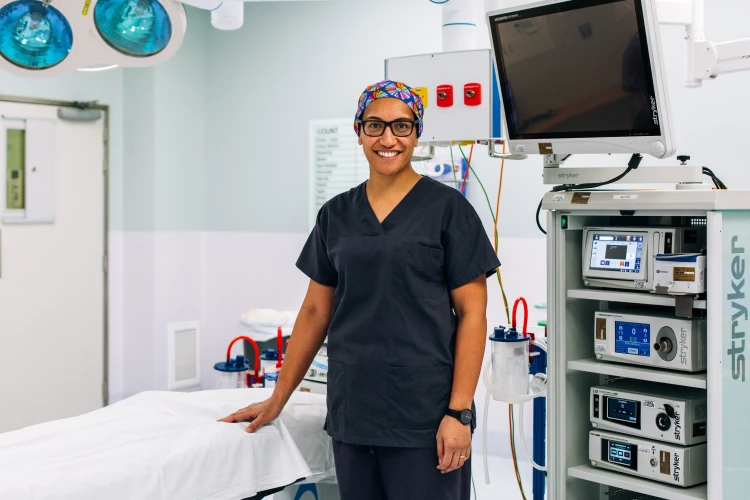
Roles & responsibilities
Diagnosis and treatment:
Cardiothoracic surgeons diagnose and manage diseases affecting the heart, lungs, esophagus, trachea, diaphragm, chest wall, and associated vascular structures. This includes both operative and non-operative treatments.
Surgical procedures:
They perform complex surgeries such as heart valve repairs, coronary artery bypass grafting (CABG), lung resections, and surgeries for congenital heart defects. Training through RACS prepares surgeons for these procedures, including advanced techniques like minimally invasive surgery.
Trauma care:
Cardiothoracic surgeons manage chest trauma, addressing injuries to vital organs and structures within the thoracic cavity.
Postoperative care:
They monitor and manage patient recovery following surgery, working with intensive care units to address complications and ensure optimal recovery outcomes.
Teaching and mentoring:
Many surgeons contribute to the training of junior doctors and surgical trainees as part of their role, in alignment with RACS training programs. This includes supervision and mentorship during clinical rotations.
Research and professional development:
Cardiothoracic surgeons must participate in ongoing professional development through RACS Continuing Professional Development (CPD) programs. They are also encouraged to contribute to clinical research to advance the field and improve surgical outcomes.
Quality assurance and patient safety:
They adhere to the standards and guidelines established by MCNZ and RACS, ensuring that all surgical interventions meet the highest standards of safety and efficacy.
Required qualifications & experience
To work as a Cardiothoracic Surgeon in New Zealand, the following qualifications and experience are required:
Medical degree:
MBChB or equivalent: Cardiothoracic surgeons must first obtain a medical degree (MBChB or equivalent) from a recognised medical school. This typically involves a 5- to 6-year undergraduate medical programme.
General medical registration:
New Zealand Medical Council Registration: Graduates must complete a one-year internship (house officer year) and obtain general registration with the Medical Council of New Zealand (MCNZ). International medical graduates may need to pass additional exams or assessments to gain registration.
Specialist training in Cardiothoracic Surgery:
Basic and advanced training: After gaining general medical registration, doctors must complete a total of six years of specialised training through the Royal Australasian College of Surgeons (RACS). This includes:
- One year of basic training.
- Five years of advanced training in cardiothoracic surgery.
- At least 12 rotations during training.
Examinations and courses: Trainees must pass several key examinations and complete essential courses during their training:
- Generic Surgical Science Examination (GSSE) prior to starting Surgical Education and Training (SET).
- Care of the Critically Ill Surgical Patient (CCrISP) by the end of SET1.
- Australian and New Zealand Surgical Skills Education and Training (ASSET) by the end of SET1.
- Early Management of Severe Trauma (EMST) by the end of SET2.
- Cardiothoracic surgical science and clinical examinations before starting the third year of training.
Fellowship with RACS:
FRACS Certification: Upon successful completion of all training requirements, including the Fellowship examination, doctors are awarded the Fellowship of the Royal Australasian College of Surgeons (FRACS) in Cardiothoracic Surgery. This is required to practice independently in New Zealand.
Experience in Cardiothoracic Surgery:
Clinical experience: Relevant experience is gained during training and must include:
- Working in an intensive care unit before starting the third year of training.
- Completing a thesis by the end of SET4.
- Publishing at least two articles in peer-reviewed journals.
- Attending annual cardiothoracic courses and Australasian Society of Cardiac and Thoracic Surgeons (ASCTS) meetings during training.
Continued Professional Development:
Ongoing education: Cardiothoracic surgeons are expected to engage in continuing professional development (CPD) through the RACS CPD programme to maintain their skills and registration.
English language proficiency:
Language requirements: Proficiency in English is mandatory. International medical graduates may need to provide proof of English language proficiency through exams like IELTS or OET unless they have completed their primary medical qualifications in an English-speaking country.
Registration with professional bodies:
Professional registration: In addition to registration with the MCNZ, cardiothoracic surgeons must adhere to the standards and codes of conduct established by RACS and other relevant professional bodies.
Information for international candidates:
Registering to work as a Senior Medical Officer in New Zealand:
To work as a Specialist in New Zealand you will need to obtain Vocational Registration with the Medical Council of New Zealand (MCNZ).
Pathways to Vocational Registration include:
1. Direct pathway to Vocational Registration:
-
If you are an International Medical Graduate (IMG) with specialist qualifications from countries with medical systems deemed equivalent to New Zealand’s (e.g., Australia, the UK, the USA, Canada, or some European countries), you may be eligible to apply directly for vocational registration without needing first to obtain general registration.
-
In this pathway, the Medical Council of New Zealand (MCNZ) will assess your specialist qualifications, clinical experience, and the medical system where you trained. If these are deemed equivalent, you can apply directly for vocational registration in your specialty.
-
This pathway allows experienced specialists to bypass general registration and the provisional general phase, which is typically required for doctors without a recognised specialist qualification.
2. Provisional Vocational Registration pathway
-
If the MCNZ determines that your qualifications and experience are largely equivalent but that you need some orientation or assessment within the New Zealand healthcare system, you may be granted provisional vocational registration.
-
This means you’ll practice in your specialty under supervision for a period, typically between 6-12 months, before being granted full vocational registration.
-
During this provisional Vocational Registration period, a specialist who practises in the same area of medicine as you will supervise you.
3. General registration pathway
-
Some IMGs who do not meet the criteria for direct vocational registration may first need to obtain general registration if their qualifications and experience are not recognized as equivalent.
-
This process to gain Vocational Registration includes:
-
A period of Provisional General Registration (with supervised practice) if necessary.
-
After obtaining General Registration, they can later apply for Vocational Registration once they have completed any further assessments or additional supervised practice required by the MCNZ.
-
Take the self-assessment
The Medical Council of New Zealand have a self-assessment tool to help you easily determine which registration pathway you should take.
Use the Medical Council's self-assessment tool
Find out more about life in New Zealand
We have a page dedicated to providing information to candidates about our recruitment process, what you need to work in New Zealand and key details about moving here.
Salary, allowances, leave, benefits & development
Salary:
Senior Medical Officers receive a base salary relative to their level of experience. This is agreed upon at the time of the job offer. There is a 15-step pay scale that SMOs continue to progress through on a yearly basis.
In New Zealand, the salary and benefits of some roles are determined by collective agreements between unions and employers. The full Senior Medical Officers collective agreement can be found on the Health New Zealand - Te Whatu Ora website here.
Additional allowances are paid on top of base salary and vary due to location and service and are often not specified in the collective agreement.
Allowances:
There are a range of additional allowances for:
-
on-call,
-
evening, night and weekend work,
-
call back,
-
job size,
-
recruitment and retention,
-
and special contribution.
Leave:
-
6 weeks of paid annual leave.
-
A minimum of 10 days of sick leave per year.
-
10 days of paid Continuing Medical Education Leave (CME), plus the ability to use annual leave tacked onto the end of your CME travel.
-
6-12 months of parental leave depending on the length of service, including 6 weeks of fully paid parental leave.
-
12 paid public holidays + time in lieu/alternative holiday if rostered on.
-
Long service leave + sabbatical opportunities.
Benefits:
- We have a modern well-developed healthcare system with access to the latest imaging technologies and diagnostic tools, enabling radiologists to provide high-quality care.
-
We place an emphasis on your work-life balance, allowing radiologists to enjoy their personal lives and engage in the abundant outdoor and recreational activities available.
-
Living in New Zealand offers a high standard of living, with access to beautiful landscapes, a safe and friendly community, and a diverse, multicultural society.
-
New Zealand provides a clear pathway to residency for medical professionals, making it easier for radiologists to settle permanently if desired.
-
The healthcare system promotes a multidisciplinary approach, allowing radiologists to work closely with other specialists and healthcare providers, fostering a collaborative and supportive work environment.
There are numerous opportunities for ongoing education and professional development, supported by a culture that values continuous learning and innovation in the medical field and access to a platform of internal educational courses.
Additional benefits include:
- An annual Continuing Medical Education (CME) allowance of NZD $16,000 (pro-rated for part-time employees).
-
Reimbursement of your registration and practising certificate fees.
-
Your professional indemnity insurance is covered by Health NZ.
-
If eligible, up to a 6% matching superannuation contribution from Health New Zealand as your employer. Find out more here.
-
A relocation package for international candidates.
Leadership and career development opportunities:
Health New Zealand encourages Senior Medical Officers to be involved in the design, implementation and performance of facilities and technology involved in the delivery of healthcare services to ensure an effective, efficient and safe workplace.
Specific opportunities vary by location and service, however, can include:
-
Support and encouragement for research and publications.
-
Mentorship opportunities for apprentice Junior Doctors/Registrars.
-
Regional and National networks allow for subspeciality research and practice.
-
Ongoing development and support for career growth with on-the-job coaching and a variety of in-house training programmes.
Neurosurgery
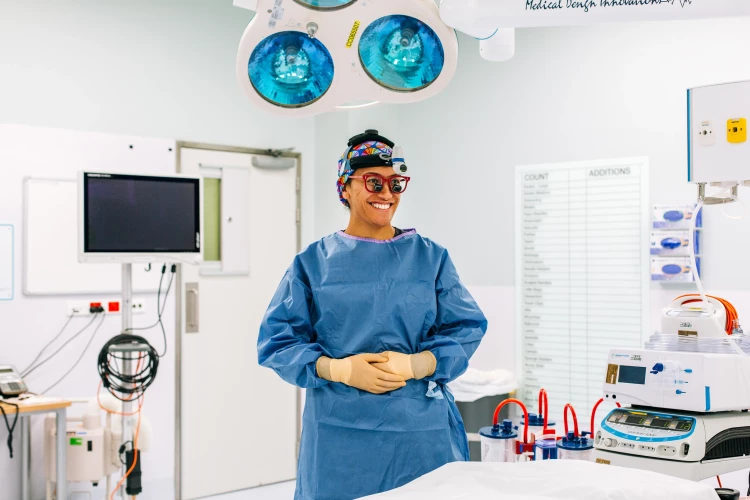
Roles & responsbilities
Diagnosis and treatment:
Neurosurgeons diagnose and manage diseases affecting the brain, spinal cord, peripheral nerves, and associated vascular structures. This includes both operative and non-operative treatments for a range of neurological conditions.
Surgical procedures:
They perform complex surgeries such as tumour resections, spinal decompressions, aneurysm repairs, and procedures for traumatic brain injuries. Training through RACS equips neurosurgeons with expertise in advanced techniques, including minimally invasive and microsurgical methods.
Trauma care:
Neurosurgeons manage neurological trauma, addressing life-threatening conditions such as skull fractures, intracranial hemorrhages, and spinal injuries.
Postoperative care:
They oversee patient recovery following surgery, monitor neurological function, manage complications, and work closely with intensive care and rehabilitation teams to ensure optimal outcomes.
Teaching and mentoring:
Many neurosurgeons contribute to the training of junior doctors and surgical trainees, aligning with RACS programs. This includes supervision, mentorship, and involvement in neurosurgical education.
Research and professional development:
Neurosurgeons engage in ongoing professional development through RACS Continuing Professional Development (CPD) programs. They are encouraged to participate in clinical research, advancing neurosurgical techniques and improving patient outcomes.
Quality assurance and patient safety:
They adhere to the standards and guidelines established by MCNZ and RACS, ensuring all surgical procedures meet the highest standards of safety and efficacy.
Required qualifications & experience
Medical degree:
MBChB or equivalent: Neurosurgeons must first obtain a medical degree (MBChB or equivalent) from a recognised medical school. This typically involves a 5- to 6-year undergraduate medical programme.
General medical registration:
New Zealand Medical Council Registration: Graduates must complete a one-year internship (house officer year) and obtain general registration with the Medical Council of New Zealand (MCNZ). International medical graduates may need to pass additional exams or assessments to gain registration.
Specialist training in Neurosurgery:
Basic and advanced training: After gaining general medical registration, doctors must complete a total of seven to eight years of specialised training through the Royal Australasian College of Surgeons (RACS). This includes:
-
A minimum of two years in a non-accredited training position to gain relevant experience.
-
Six years of accredited training in neurosurgery under the RACS Surgical Education and Training (SET) program.
Examinations and courses: Neurosurgical trainees must pass several critical examinations and courses, including:
-
Generic Surgical Science Examination (GSSE).
-
Clinical and operative assessments during the SET program.
-
Completion of the Early Management of Severe Trauma (EMST) course.
Fellowship with RACS:
FRACS Certification: Upon successful completion of all training requirements, including the Fellowship examination, doctors are awarded the Fellowship of the Royal Australasian College of Surgeons (FRACS) in Neurosurgery. This is required to practice independently in New Zealand.
Experience in Neurosurgery:
Clinical experience: Relevant experience is gained during training, including:
-
Working across diverse neurosurgical sub-specialties such as cranial, spinal, and pediatric neurosurgery.
-
Participating in research or publishing articles in peer-reviewed journals.
Continued Professional Development:
Ongoing education: Neurosurgeons are expected to engage in continuing professional development (CPD) through the RACS CPD program to maintain their skills and registration.
English language proficiency:
Language requirements: Proficiency in English is mandatory. International medical graduates may need to provide proof of English language proficiency through exams like IELTS or OET unless they have completed their primary medical qualifications in an English-speaking country.
Registration with professional bodies:
Professional registration: In addition to registration with the MCNZ, neurosurgeons must adhere to the standards and codes of conduct established by RACS and other relevant professional bodies.
Information for international candidates:
Registering to work as a Senior Medical Officer in New Zealand:
To work as a Specialist in New Zealand you will need to obtain Vocational Registration with the Medical Council of New Zealand (MCNZ).
Pathways to Vocational Registration include:
1. Direct pathway to Vocational Registration:
-
If you are an International Medical Graduate (IMG) with specialist qualifications from countries with medical systems deemed equivalent to New Zealand’s (e.g., Australia, the UK, the USA, Canada, or some European countries), you may be eligible to apply directly for vocational registration without needing first to obtain general registration.
-
In this pathway, the Medical Council of New Zealand (MCNZ) will assess your specialist qualifications, clinical experience, and the medical system where you trained. If these are deemed equivalent, you can apply directly for vocational registration in your specialty.
-
This pathway allows experienced specialists to bypass general registration and the provisional general phase, which is typically required for doctors without a recognised specialist qualification.
2. Provisional Vocational Registration pathway
-
If the MCNZ determines that your qualifications and experience are largely equivalent but that you need some orientation or assessment within the New Zealand healthcare system, you may be granted provisional vocational registration.
-
This means you’ll practice in your specialty under supervision for a period, typically between 6-12 months, before being granted full vocational registration.
-
During this provisional Vocational Registration period, a specialist who practises in the same area of medicine as you will supervise you.
3. General registration pathway
-
Some IMGs who do not meet the criteria for direct vocational registration may first need to obtain general registration if their qualifications and experience are not recognized as equivalent.
-
This process to gain Vocational Registration includes:
-
A period of Provisional General Registration (with supervised practice) if necessary.
-
After obtaining General Registration, they can later apply for Vocational Registration once they have completed any further assessments or additional supervised practice required by the MCNZ.
-
Take the self-assessment
The Medical Council of New Zealand have a self-assessment tool to help you easily determine which registration pathway you should take.
Use the Medical Council's self-assessment tool
Find out more about life in New Zealand
We have a page dedicated to providing information to candidates about our recruitment process, what you need to work in New Zealand and key details about moving here.
Salary, allowances, leave, benefits & development
Salary:
Senior Medical Officers receive a base salary relative to their level of experience. This is agreed upon at the time of the job offer. There is a 15-step pay scale that SMOs continue to progress through on a yearly basis.
In New Zealand, the salary and benefits of some roles are determined by collective agreements between unions and employers. The full Senior Medical Officers collective agreement can be found on the Health New Zealand - Te Whatu Ora website here.
Additional allowances are paid on top of base salary and vary due to location and service and are often not specified in the collective agreement.
Allowances:
There are a range of additional allowances for:
-
on-call,
-
evening, night and weekend work,
-
call back,
-
job size,
-
recruitment and retention,
-
and special contribution.
Leave:
-
6 weeks of paid annual leave.
-
A minimum of 10 days of sick leave per year.
-
10 days of paid Continuing Medical Education Leave (CME), plus the ability to use annual leave tacked onto the end of your CME travel.
-
6-12 months of parental leave depending on the length of service, including 6 weeks of fully paid parental leave.
-
12 paid public holidays + time in lieu/alternative holiday if rostered on.
-
Long service leave + sabbatical opportunities.
Benefits:
- We have a modern well-developed healthcare system with access to the latest imaging technologies and diagnostic tools, enabling radiologists to provide high-quality care.
-
We place an emphasis on your work-life balance, allowing radiologists to enjoy their personal lives and engage in the abundant outdoor and recreational activities available.
-
Living in New Zealand offers a high standard of living, with access to beautiful landscapes, a safe and friendly community, and a diverse, multicultural society.
-
New Zealand provides a clear pathway to residency for medical professionals, making it easier for radiologists to settle permanently if desired.
-
The healthcare system promotes a multidisciplinary approach, allowing radiologists to work closely with other specialists and healthcare providers, fostering a collaborative and supportive work environment.
There are numerous opportunities for ongoing education and professional development, supported by a culture that values continuous learning and innovation in the medical field and access to a platform of internal educational courses.
Additional benefits include:
- An annual Continuing Medical Education (CME) allowance of NZD $16,000 (pro-rated for part-time employees).
-
Reimbursement of your registration and practising certificate fees.
-
Your professional indemnity insurance is covered by Health NZ.
-
If eligible, up to a 6% matching superannuation contribution from Health New Zealand as your employer. Find out more here.
-
A relocation package for international candidates.
Leadership and career development opportunities:
Health New Zealand encourages Senior Medical Officers to be involved in the design, implementation and performance of facilities and technology involved in the delivery of healthcare services to ensure an effective, efficient and safe workplace.
Specific opportunities vary by location and service, however, can include:
-
Support and encouragement for research and publications.
-
Mentorship opportunities for apprentice Junior Doctors/Registrars.
-
Regional and National networks allow for subspeciality research and practice.
-
Ongoing development and support for career growth with on-the-job coaching and a variety of in-house training programmes.
Oral & maxillofacial Surgery
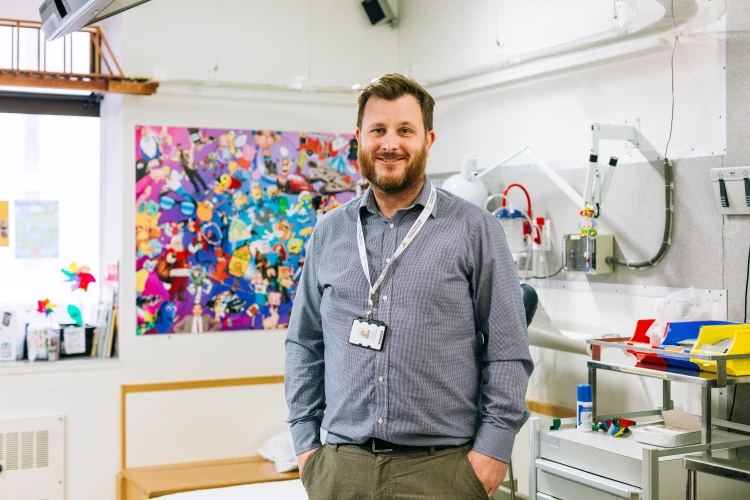
Roles & responsibilities
Diagnosing conditions of the face, jaws, and oral structures
Oral and Maxillofacial Surgeons are responsible for identifying diseases, deformities, and injuries affecting the face, mouth, jaws, and associated structures. They use clinical evaluations, imaging, and diagnostic tools to provide accurate diagnoses.
Performing specialised surgical procedures
They perform a variety of surgeries, including:
-
Jaw realignment (orthognathic surgery).
-
Removal of impacted teeth and complex extractions.
-
Repair of facial fractures and soft tissue injuries.
-
Reconstructive surgeries following trauma or tumour removal.
-
Placement of dental implants and associated bone grafts.
-
Temporomandibular joint (TMJ) surgeries for jaw movement disorders.
Providing emergency and trauma care
Oral and Maxillofacial Surgeons manage acute injuries to the face, such as jaw fractures, orbital fractures, and soft tissue injuries. Their work focuses on both functional restoration and aesthetic outcomes.
Overseeing postoperative and recovery care
They ensure proper healing by monitoring recovery, managing pain, and addressing complications. Surgeons also guide rehabilitation efforts, including dietary recommendations or prosthetic use when necessary.
Training and mentoring future surgeons
Oral and Maxillofacial Surgeons play an active role in educating and mentoring medical and dental students, junior doctors, and surgical trainees, ensuring the next generation of surgeons is well-trained.
Advancing surgical practices through research
They engage in clinical research to improve surgical techniques and materials, publish findings, and contribute to advancements in the field.
Maintaining safety and adhering to professional standards
Surgeons follow the safety and ethical guidelines established by New Zealand’s Medical and Dental Councils to ensure all procedures meet the highest standards of care and professionalism.
Required qualifications & experience
To work as an Oral and Maxillofacial Surgeon in New Zealand, the following qualifications and experience are required:
Medical and dental degrees
MBChB and BDS or equivalent: Oral and Maxillofacial Surgeons must obtain both a medical degree (MBChB or equivalent) and a dental degree (BDS or equivalent) from recognised institutions. Each degree typically involves a 5- to 6-year programme.
General medical and dental registration
New Zealand Medical and Dental Council Registration: Graduates must complete one year of internship (house officer year) to obtain general registration with the Medical Council of New Zealand (MCNZ) and the Dental Council of New Zealand. International graduates may need to pass additional exams or assessments to gain registration.
Specialist training in Oral and Maxillofacial Surgery
Training programme: After general registration, surgeons must complete a structured specialist training programme in oral and maxillofacial surgery through the Royal Australasian College of Dental Surgeons (RACDS) or an equivalent body. This training typically involves:
- A minimum of five years of accredited surgical training.
- Rotations through various surgical units to gain comprehensive experience in the field.
Examinations and courses: Trainees are required to complete examinations and certifications, including:
- Primary and final examinations in oral and maxillofacial surgery.
- Additional training in advanced surgical techniques, such as orthognathic surgery, facial trauma repair, and reconstructive surgery.
Fellowship certification
Fellowship with RACDS or equivalent: Upon successful completion of all training requirements, candidates must obtain a Fellowship with the Royal Australasian College of Dental Surgeons (FRACDS) or an equivalent qualification to practice independently in New Zealand.
Experience in Oral and Maxillofacial Surgery
Clinical experience: During training, surgeons gain hands-on experience in areas such as:
- Treating facial trauma, congenital deformities, and oral cancers.
- Performing complex surgeries like jaw reconstructions and dental implant placements.
- Managing multidisciplinary cases involving dental, surgical, and medical teams.
Continued Professional Development
Ongoing education: Oral and Maxillofacial Surgeons are expected to engage in continuing professional development (CPD) through RACDS or equivalent programmes to maintain their skills and registration.
English language proficiency
Language requirements: Proficiency in English is mandatory. International medical graduates may need to provide proof of English language proficiency through exams like IELTS or OET unless they have completed their primary qualifications in an English-speaking country.
Registration with professional bodies
Professional registration: In addition to MCNZ and Dental Council registration, Oral and Maxillofacial Surgeons must adhere to the standards and codes of conduct established by RACDS and other relevant professional bodies.
Information for international candidates:
Registering to work as a Senior Medical Officer in New Zealand:
To work as a Specialist in New Zealand you will need to obtain Vocational Registration with the Medical Council of New Zealand (MCNZ).
Pathways to Vocational Registration include:
1. Direct pathway to Vocational Registration:
-
If you are an International Medical Graduate (IMG) with specialist qualifications from countries with medical systems deemed equivalent to New Zealand’s (e.g., Australia, the UK, the USA, Canada, or some European countries), you may be eligible to apply directly for vocational registration without needing first to obtain general registration.
-
In this pathway, the Medical Council of New Zealand (MCNZ) will assess your specialist qualifications, clinical experience, and the medical system where you trained. If these are deemed equivalent, you can apply directly for vocational registration in your specialty.
-
This pathway allows experienced specialists to bypass general registration and the provisional general phase, which is typically required for doctors without a recognised specialist qualification.
2. Provisional Vocational Registration pathway
-
If the MCNZ determines that your qualifications and experience are largely equivalent but that you need some orientation or assessment within the New Zealand healthcare system, you may be granted provisional vocational registration.
-
This means you’ll practice in your specialty under supervision for a period, typically between 6-12 months, before being granted full vocational registration.
-
During this provisional Vocational Registration period, a specialist who practises in the same area of medicine as you will supervise you.
3. General registration pathway
-
Some IMGs who do not meet the criteria for direct vocational registration may first need to obtain general registration if their qualifications and experience are not recognized as equivalent.
-
This process to gain Vocational Registration includes:
-
A period of Provisional General Registration (with supervised practice) if necessary.
-
After obtaining General Registration, they can later apply for Vocational Registration once they have completed any further assessments or additional supervised practice required by the MCNZ.
-
Take the self-assessment
The Medical Council of New Zealand have a self-assessment tool to help you easily determine which registration pathway you should take.
Use the Medical Council's self-assessment tool
Find out more about life in New Zealand
We have a page dedicated to providing information to candidates about our recruitment process, what you need to work in New Zealand and key details about moving here.
Salary, allowances, leave, benefits & development
Salary:
Senior Medical Officers receive a base salary relative to their level of experience. This is agreed upon at the time of the job offer. There is a 15-step pay scale that SMOs continue to progress through on a yearly basis.
In New Zealand, the salary and benefits of some roles are determined by collective agreements between unions and employers. The full Senior Medical Officers collective agreement can be found on the Health New Zealand - Te Whatu Ora website here.
Additional allowances are paid on top of base salary and vary due to location and service and are often not specified in the collective agreement.
Allowances:
There are a range of additional allowances for:
-
on-call,
-
evening, night and weekend work,
-
call back,
-
job size,
-
recruitment and retention,
-
and special contribution.
Leave:
-
6 weeks of paid annual leave.
-
A minimum of 10 days of sick leave per year.
-
10 days of paid Continuing Medical Education Leave (CME), plus the ability to use annual leave tacked onto the end of your CME travel.
-
6-12 months of parental leave depending on the length of service, including 6 weeks of fully paid parental leave.
-
12 paid public holidays + time in lieu/alternative holiday if rostered on.
-
Long service leave + sabbatical opportunities.
Benefits:
- We have a modern well-developed healthcare system with access to the latest imaging technologies and diagnostic tools, enabling radiologists to provide high-quality care.
-
We place an emphasis on your work-life balance, allowing radiologists to enjoy their personal lives and engage in the abundant outdoor and recreational activities available.
-
Living in New Zealand offers a high standard of living, with access to beautiful landscapes, a safe and friendly community, and a diverse, multicultural society.
-
New Zealand provides a clear pathway to residency for medical professionals, making it easier for radiologists to settle permanently if desired.
-
The healthcare system promotes a multidisciplinary approach, allowing radiologists to work closely with other specialists and healthcare providers, fostering a collaborative and supportive work environment.
There are numerous opportunities for ongoing education and professional development, supported by a culture that values continuous learning and innovation in the medical field and access to a platform of internal educational courses.
Additional benefits include:
- An annual Continuing Medical Education (CME) allowance of NZD $16,000 (pro-rated for part-time employees).
-
Reimbursement of your registration and practising certificate fees.
-
Your professional indemnity insurance is covered by Health NZ.
-
If eligible, up to a 6% matching superannuation contribution from Health New Zealand as your employer. Find out more here.
-
A relocation package for international candidates.
Leadership and career development opportunities:
Health New Zealand encourages Senior Medical Officers to be involved in the design, implementation and performance of facilities and technology involved in the delivery of healthcare services to ensure an effective, efficient and safe workplace.
Specific opportunities vary by location and service, however, can include:
-
Support and encouragement for research and publications.
-
Mentorship opportunities for apprentice Junior Doctors/Registrars.
-
Regional and National networks allow for subspeciality research and practice.
-
Ongoing development and support for career growth with on-the-job coaching and a variety of in-house training programmes.
Orthopaedic Surgery
As an Orthopaedic Surgeon in New Zealand, you'll be part of a forward-thinking and collaborative healthcare environment, working alongside multidisciplinary teams to deliver top-tier, patient-focused care for a wide range of musculoskeletal conditions.
We are committed to fostering innovation and professional growth, providing ample opportunities for continued education and leadership development. As you refine your surgical techniques and expand your expertise, you'll play a key role in advancing patient outcomes and improving the quality of life for individuals with bone, joint, and soft tissue issues.
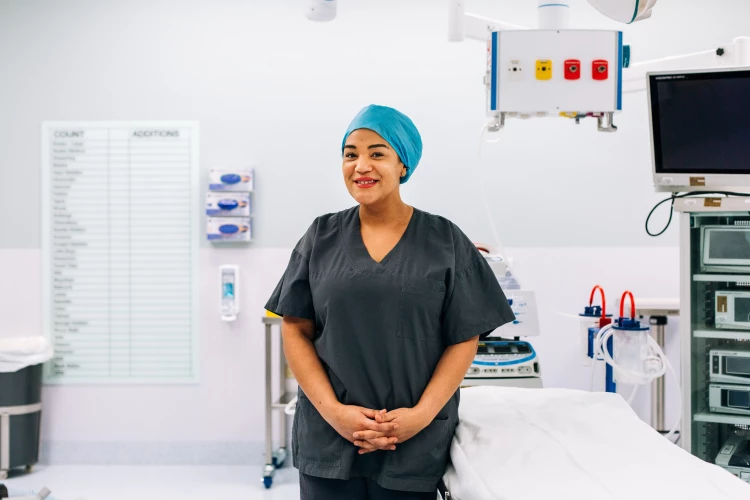
Roles & responsbilities
Diagnosing musculoskeletal conditions:
Orthopaedic Surgeons are responsible for diagnosing a wide range of musculoskeletal disorders, including bone, joint, and soft tissue injuries or diseases. They use a combination of clinical assessments, imaging techniques, and diagnostic tools to ensure accurate identification of conditions such as fractures, arthritis, or degenerative disorders.
Performing specialised surgical procedures:
Orthopaedic Surgeons perform a variety of complex surgeries, including:
-
Joint replacements
-
Spinal surgeries for deformities or injuries
-
Repair of fractures and torn ligaments
-
Arthroscopy for joint issues
-
Correction of bone deformities
-
Soft tissue surgeries, such as tendon or ligament repairs
Providing emergency and trauma care:
Orthopaedic Surgeons manage acute injuries to bones, joints, and soft tissues, such as fractures, dislocations, and tendon ruptures. Their focus is on restoring function and ensuring optimal recovery while also considering long-term mobility and quality of life.
Overseeing postoperative and recovery care:
They closely monitor patients during recovery, ensuring proper healing, managing pain, and addressing any complications. They guide rehabilitation efforts, including physiotherapy, pain management, and mobility restoration, and provide advice on lifestyle modifications to support recovery.
Training and mentoring future surgeons:
Orthopaedic Surgeons actively engage in the education and mentorship of medical students, junior doctors, and surgical trainees, ensuring the development of skilled professionals in the field. They contribute to shaping the next generation of orthopaedic specialists through hands-on teaching and knowledge-sharing.
Advancing surgical practices through research:
Orthopaedic Surgeons participate in clinical research to refine surgical techniques and develop innovative treatments. They contribute to improving patient outcomes by researching new technologies, surgical approaches, and rehabilitation methods while sharing findings with the broader medical community.
Maintaining safety and adhering to professional standards:
Orthopaedic Surgeons adhere to the safety and ethical guidelines established by New Zealand’s medical regulatory bodies, ensuring that all procedures meet the highest standards of care. They are committed to patient safety and providing the best possible surgical outcomes through meticulous practice and professional conduct.
Required qualifications & experience
To work as an Orthopaedic Surgeon in New Zealand, the following qualifications and experience are required:
Medical degree:
MBChB or equivalent: Orthopaedic Surgeons must first obtain a medical degree (MBChB or equivalent) from a recognised medical school. This typically involves a 5- to 6-year undergraduate medical programme.
General medical registration:
New Zealand Medical Council Registration: Graduates must complete a one-year internship (house officer year) and obtain general registration with the Medical Council of New Zealand (MCNZ). International medical graduates may need to pass additional exams or assessments to gain registration.
Specialist training in Orthopaedic Surgery:
Basic and advanced training: After gaining general medical registration, doctors must complete a total of six years of specialised training through the Royal Australasian College of Surgeons (RACS). This includes:
-
One year of basic training.
-
Five years of advanced training in orthopaedic surgery.
-
At least 12 rotations during training.
Examinations and courses: Trainees must pass several key examinations and complete essential courses during their training:
-
Generic Surgical Science Examination (GSSE) prior to starting Surgical Education and Training (SET).
-
Care of the Critically Ill Surgical Patient (CCrISP) by the end of SET1.
-
Australian and New Zealand Surgical Skills Education and Training (ASSET) by the end of SET1.
-
Early Management of Severe Trauma (EMST) by the end of SET2.
-
Orthopaedic surgical science and clinical examinations before starting the third year of training.
Fellowship with RACS:
FRACS Certification: Upon successful completion of all training requirements, including the Fellowship examination, doctors are awarded the Fellowship of the Royal Australasian College of Surgeons (FRACS) in Orthopaedic Surgery. This is required to practice independently in New Zealand.
Experience in Orthopaedic Surgery:
Clinical experience: Relevant experience is gained during training and must include:
-
Working in an intensive care unit before starting the third year of training.
-
Completing a thesis by the end of SET4.
-
Publishing at least two articles in peer-reviewed journals.
-
Attending annual orthopaedic courses and Orthopaedic Society of New Zealand (OSNZ) meetings during training.
Continued Professional Development:
Ongoing education: Orthopaedic surgeons are expected to engage in continuing professional development (CPD) through the RACS CPD programme to maintain their skills and registration.
English language proficiency:
Language requirements: Proficiency in English is mandatory. International medical graduates may need to provide proof of English language proficiency through exams like IELTS or OET unless they have completed their primary medical qualifications in an English-speaking country.
Registration with professional bodies:
Professional registration: In addition to registration with the MCNZ, orthopaedic surgeons must adhere to the standards and codes of conduct established by RACS and other relevant professional bodies.
Information for international candidates:
Registering to work as a Senior Medical Officer in New Zealand:
To work as a Specialist in New Zealand you will need to obtain Vocational Registration with the Medical Council of New Zealand (MCNZ).
Pathways to Vocational Registration include:
1. Direct pathway to Vocational Registration:
-
If you are an International Medical Graduate (IMG) with specialist qualifications from countries with medical systems deemed equivalent to New Zealand’s (e.g., Australia, the UK, the USA, Canada, or some European countries), you may be eligible to apply directly for vocational registration without needing first to obtain general registration.
-
In this pathway, the Medical Council of New Zealand (MCNZ) will assess your specialist qualifications, clinical experience, and the medical system where you trained. If these are deemed equivalent, you can apply directly for vocational registration in your specialty.
-
This pathway allows experienced specialists to bypass general registration and the provisional general phase, which is typically required for doctors without a recognised specialist qualification.
2. Provisional Vocational Registration pathway
-
If the MCNZ determines that your qualifications and experience are largely equivalent but that you need some orientation or assessment within the New Zealand healthcare system, you may be granted provisional vocational registration.
-
This means you’ll practice in your specialty under supervision for a period, typically between 6-12 months, before being granted full vocational registration.
-
During this provisional Vocational Registration period, a specialist who practises in the same area of medicine as you will supervise you.
3. General registration pathway
-
Some IMGs who do not meet the criteria for direct vocational registration may first need to obtain general registration if their qualifications and experience are not recognized as equivalent.
-
This process to gain Vocational Registration includes:
-
A period of Provisional General Registration (with supervised practice) if necessary.
-
After obtaining General Registration, they can later apply for Vocational Registration once they have completed any further assessments or additional supervised practice required by the MCNZ.
-
Take the self-assessment
The Medical Council of New Zealand have a self-assessment tool to help you easily determine which registration pathway you should take.
Use the Medical Council's self-assessment tool
Find out more about life in New Zealand
We have a page dedicated to providing information to candidates about our recruitment process, what you need to work in New Zealand and key details about moving here.
Salary, allowances, leave, benefits & development
Salary:
Senior Medical Officers receive a base salary relative to their level of experience. This is agreed upon at the time of the job offer. There is a 15-step pay scale that SMOs continue to progress through on a yearly basis.
In New Zealand, the salary and benefits of some roles are determined by collective agreements between unions and employers. The full Senior Medical Officers collective agreement can be found on the Health New Zealand - Te Whatu Ora website here.
Additional allowances are paid on top of base salary and vary due to location and service and are often not specified in the collective agreement.
Allowances:
There are a range of additional allowances for:
-
on-call,
-
evening, night and weekend work,
-
call back,
-
job size,
-
recruitment and retention,
-
and special contribution.
Leave:
-
6 weeks of paid annual leave.
-
A minimum of 10 days of sick leave per year.
-
10 days of paid Continuing Medical Education Leave (CME), plus the ability to use annual leave tacked onto the end of your CME travel.
-
6-12 months of parental leave depending on the length of service, including 6 weeks of fully paid parental leave.
-
12 paid public holidays + time in lieu/alternative holiday if rostered on.
-
Long service leave + sabbatical opportunities.
Benefits:
- We have a modern well-developed healthcare system with access to the latest imaging technologies and diagnostic tools, enabling radiologists to provide high-quality care.
-
We place an emphasis on your work-life balance, allowing radiologists to enjoy their personal lives and engage in the abundant outdoor and recreational activities available.
-
Living in New Zealand offers a high standard of living, with access to beautiful landscapes, a safe and friendly community, and a diverse, multicultural society.
-
New Zealand provides a clear pathway to residency for medical professionals, making it easier for radiologists to settle permanently if desired.
-
The healthcare system promotes a multidisciplinary approach, allowing radiologists to work closely with other specialists and healthcare providers, fostering a collaborative and supportive work environment.
There are numerous opportunities for ongoing education and professional development, supported by a culture that values continuous learning and innovation in the medical field and access to a platform of internal educational courses.
Additional benefits include:
- An annual Continuing Medical Education (CME) allowance of NZD $16,000 (pro-rated for part-time employees).
-
Reimbursement of your registration and practising certificate fees.
-
Your professional indemnity insurance is covered by Health NZ.
-
If eligible, up to a 6% matching superannuation contribution from Health New Zealand as your employer. Find out more here.
-
A relocation package for international candidates.
Leadership and career development opportunities:
Health New Zealand encourages Senior Medical Officers to be involved in the design, implementation and performance of facilities and technology involved in the delivery of healthcare services to ensure an effective, efficient and safe workplace.
Specific opportunities vary by location and service, however, can include:
-
Support and encouragement for research and publications.
-
Mentorship opportunities for apprentice Junior Doctors/Registrars.
-
Regional and National networks allow for subspeciality research and practice.
-
Ongoing development and support for career growth with on-the-job coaching and a variety of in-house training programmes.
Otolaryngology, Head & Neck Surgery
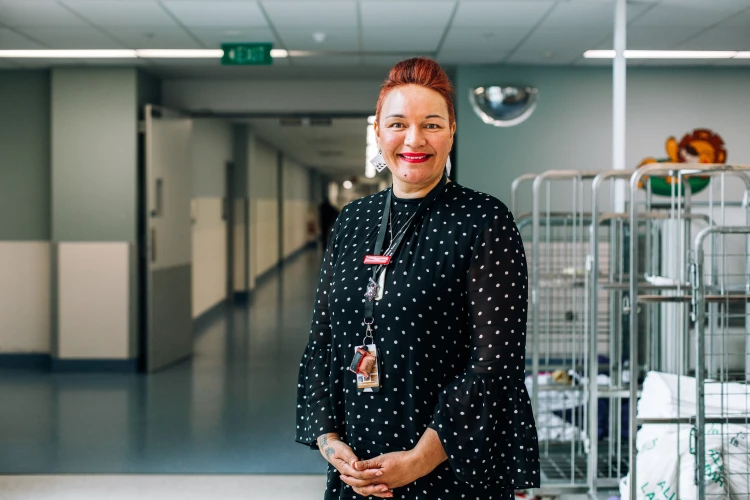
Roles & responsibilities
Diagnosis and treatment:
Otolaryngology, Head and Neck Surgeons diagnose and manage disorders of the ear, nose, throat, and related structures of the head and neck. This includes both operative and non-operative treatments for conditions such as hearing loss, balance disorders, speech and swallowing issues, sleep apnoea, snoring, head and neck cancers, and disorders of the salivary and thyroid glands.
Surgical procedures:
They perform complex surgeries, including procedures for head and neck cancers (excluding the eye and brain), salivary gland surgeries, thyroid surgeries, ear surgeries, and facial reconstructive surgeries. RACS training prepares surgeons for these procedures, including advanced techniques like minimally invasive and endoscopic surgeries.
Trauma care:
Otolaryngology, Head and Neck Surgeons manage trauma affecting the head and neck region, including facial fractures, airway obstructions, and injuries to the ears, nose, and throat, ensuring rapid and effective treatment.
Postoperative care:
They oversee patient recovery following surgery, monitoring for complications such as infections, bleeding, and airway obstructions. They collaborate with multidisciplinary teams, including speech therapists and audiologists, to ensure the best possible recovery outcomes for patients.
Teaching and mentoring:
Otolaryngology, Head and Neck Surgeons contribute to the education and training of junior doctors and surgical trainees, aligning with RACS training programs. This includes providing supervision and mentorship during clinical rotations and supporting the development of future professionals in the field.
Research and professional development:
Otolaryngology, Head and Neck Surgeons participate in ongoing professional development through RACS Continuing Professional Development (CPD) programs. They are also encouraged to engage in clinical research, contributing to advancements in techniques and improving patient care outcomes.
Quality assurance and patient safety:
Otolaryngology, Head and Neck Surgeons adhere to the standards and guidelines established by MCNZ and RACS, ensuring all surgical interventions and patient care practices meet the highest standards of safety, efficacy, and professionalism.
Required qualifications & experience
Medical Degree & Registration:
-
MBChB or equivalent from a recognised medical school (5–6 years).
-
General registration with the Medical Council of New Zealand (MCNZ) after a one-year internship.
-
International Medical Graduates (IMGs) may need additional exams for MCNZ registration.
Specialist Training (RACS SET Program):
-
6 years of training through the Royal Australasian College of Surgeons (RACS):
-
1 year of basic surgical training.
-
5 years of advanced training in Otolaryngology, Head & Neck Surgery.
-
Rotations in head & neck cancer, facial plastic surgery, otology, rhinology, and laryngology.
-
-
Exams & Required Courses:
-
Generic Surgical Sciences Examination (GSSE).
-
Care of the Critically Ill Surgical Patient (CCrISP).
-
Australian & New Zealand Surgical Skills Education & Training (ASSET).
-
Early Management of Severe Trauma (EMST).
-
Final Fellowship Examination.
-
FRACS Certification & Experience:
-
Fellowship of the Royal Australasian College of Surgeons (FRACS) is required for independent practice.
-
Experience in ICU, research, and publishing in peer-reviewed journals.
-
Attendance at conferences, workshops, and professional development courses.
Ongoing Professional Development:
- CPD through RACS to maintain certification and expertise.
English Proficiency & Registration:
-
Proof of English proficiency (IELTS/OET) is required for IMGs.
-
Registration with MCNZ and RACS, adhering to professional standards.
Information for international candidates:
Registering to work as a Senior Medical Officer in New Zealand:
To work as a Specialist in New Zealand you will need to obtain Vocational Registration with the Medical Council of New Zealand (MCNZ).
Pathways to Vocational Registration include:
1. Direct pathway to Vocational Registration:
-
If you are an International Medical Graduate (IMG) with specialist qualifications from countries with medical systems deemed equivalent to New Zealand’s (e.g., Australia, the UK, the USA, Canada, or some European countries), you may be eligible to apply directly for vocational registration without needing first to obtain general registration.
-
In this pathway, the Medical Council of New Zealand (MCNZ) will assess your specialist qualifications, clinical experience, and the medical system where you trained. If these are deemed equivalent, you can apply directly for vocational registration in your specialty.
-
This pathway allows experienced specialists to bypass general registration and the provisional general phase, which is typically required for doctors without a recognised specialist qualification.
2. Provisional Vocational Registration pathway
-
If the MCNZ determines that your qualifications and experience are largely equivalent but that you need some orientation or assessment within the New Zealand healthcare system, you may be granted provisional vocational registration.
-
This means you’ll practice in your specialty under supervision for a period, typically between 6-12 months, before being granted full vocational registration.
-
During this provisional Vocational Registration period, a specialist who practises in the same area of medicine as you will supervise you.
3. General registration pathway
-
Some IMGs who do not meet the criteria for direct vocational registration may first need to obtain general registration if their qualifications and experience are not recognized as equivalent.
-
This process to gain Vocational Registration includes:
-
A period of Provisional General Registration (with supervised practice) if necessary.
-
After obtaining General Registration, they can later apply for Vocational Registration once they have completed any further assessments or additional supervised practice required by the MCNZ.
-
Take the self-assessment
The Medical Council of New Zealand have a self-assessment tool to help you easily determine which registration pathway you should take.
Use the Medical Council's self-assessment tool
Find out more about life in New Zealand
We have a page dedicated to providing information to candidates about our recruitment process, what you need to work in New Zealand and key details about moving here.
Salary, allowances, leave, benefits & development
Salary:
Senior Medical Officers receive a base salary relative to their level of experience. This is agreed upon at the time of the job offer. There is a 15-step pay scale that SMOs continue to progress through on a yearly basis.
In New Zealand, the salary and benefits of some roles are determined by collective agreements between unions and employers. The full Senior Medical Officers collective agreement can be found on the Health New Zealand - Te Whatu Ora website here.
Additional allowances are paid on top of base salary and vary due to location and service and are often not specified in the collective agreement.
Allowances:
There are a range of additional allowances for:
-
on-call,
-
evening, night and weekend work,
-
call back,
-
job size,
-
recruitment and retention,
-
and special contribution.
Leave:
-
6 weeks of paid annual leave.
-
A minimum of 10 days of sick leave per year.
-
10 days of paid Continuing Medical Education Leave (CME), plus the ability to use annual leave tacked onto the end of your CME travel.
-
6-12 months of parental leave depending on the length of service, including 6 weeks of fully paid parental leave.
-
12 paid public holidays + time in lieu/alternative holiday if rostered on.
-
Long service leave + sabbatical opportunities.
Benefits:
- We have a modern well-developed healthcare system with access to the latest imaging technologies and diagnostic tools, enabling radiologists to provide high-quality care.
-
We place an emphasis on your work-life balance, allowing radiologists to enjoy their personal lives and engage in the abundant outdoor and recreational activities available.
-
Living in New Zealand offers a high standard of living, with access to beautiful landscapes, a safe and friendly community, and a diverse, multicultural society.
-
New Zealand provides a clear pathway to residency for medical professionals, making it easier for radiologists to settle permanently if desired.
-
The healthcare system promotes a multidisciplinary approach, allowing radiologists to work closely with other specialists and healthcare providers, fostering a collaborative and supportive work environment.
There are numerous opportunities for ongoing education and professional development, supported by a culture that values continuous learning and innovation in the medical field and access to a platform of internal educational courses.
Additional benefits include:
- An annual Continuing Medical Education (CME) allowance of NZD $16,000 (pro-rated for part-time employees).
-
Reimbursement of your registration and practising certificate fees.
-
Your professional indemnity insurance is covered by Health NZ.
-
If eligible, up to a 6% matching superannuation contribution from Health New Zealand as your employer. Find out more here.
-
A relocation package for international candidates.
Leadership and career development opportunities:
Health New Zealand encourages Senior Medical Officers to be involved in the design, implementation and performance of facilities and technology involved in the delivery of healthcare services to ensure an effective, efficient and safe workplace.
Specific opportunities vary by location and service, however, can include:
-
Support and encouragement for research and publications.
-
Mentorship opportunities for apprentice Junior Doctors/Registrars.
-
Regional and National networks allow for subspeciality research and practice.
-
Ongoing development and support for career growth with on-the-job coaching and a variety of in-house training programmes.
Paediatric surgery
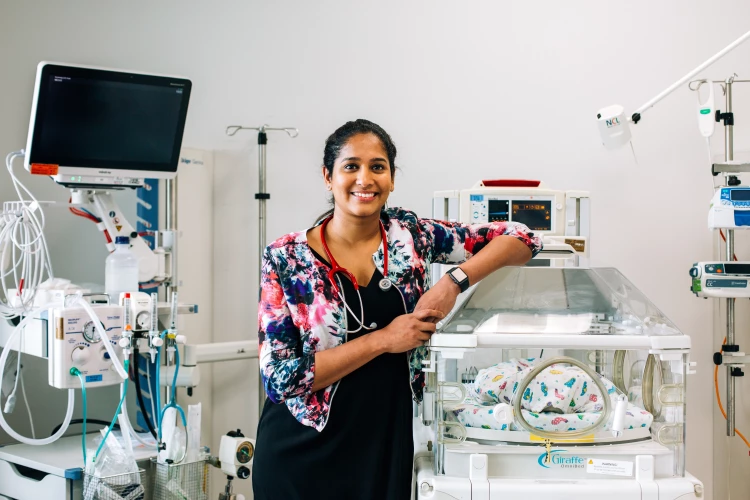
Roles & responsbilities
Diagnosis & treatment:
Paediatric Surgeons diagnose and manage surgical conditions in infants, children, and adolescents. This includes both operative and non-operative treatments for congenital anomalies, gastrointestinal disorders, paediatric oncology, trauma, and urological conditions.
Surgical procedures
They perform complex surgeries, including neonatal and infant surgery, gastrointestinal and thoracic procedures, oncological tumour resections, and congenital anomaly corrections. RACS training equips surgeons with advanced techniques, including minimally invasive and laparoscopic surgery.
Trauma care:
Paediatric Surgeons manage paediatric trauma, addressing critical conditions such as abdominal injuries, chest trauma, and congenital airway obstructions, ensuring timely and specialised surgical intervention.
Postoperative care:
They oversee patient recovery following surgery, monitoring for complications and collaborating with multidisciplinary teams, including paediatricians, anaesthetists, and intensive care specialists, to ensure optimal patient outcomes.
Teaching & mentoring:
Paediatric Surgeons contribute to the education and training of junior doctors and surgical trainees in alignment with RACS training programs. They provide supervision, mentorship, and guidance to future paediatric surgical specialists.
Research & professional development:
Paediatric Surgeons engage in ongoing professional development through RACS Continuing Professional Development (CPD) programs and contribute to clinical research, advancing surgical techniques and improving paediatric patient care.
Quality assurance & patient safety:
They adhere to the standards and guidelines set by MCNZ and RACS, ensuring that all surgical procedures meet the highest standards of safety, efficacy, and professionalism.
Required qualifications & experience
Medical Degree & Registration:
-
Medical Degree: Obtain a Bachelor of Medicine and Bachelor of Surgery (MBChB) or an equivalent qualification from a recognised medical school, typically a 5–6 year program.
-
General Registration: Complete a one-year internship to gain general registration with the Medical Council of New Zealand (MCNZ).
-
International Medical Graduates (IMGs): May need to pass additional examinations or assessments to achieve MCNZ registration.
Specialist Training (RACS SET Programme):
-
Surgical Education and Training (SET) Program: Administered by the Royal Australasian College of Surgeons (RACS), the Paediatric Surgery SET program involves:
-
Basic Surgical Training: Initial training period focusing on foundational surgical skills.
-
Advanced Training in Paediatric Surgery: Comprehensive training covering areas such as neonatal surgery, gastrointestinal surgery, oncology, trauma, and urology.
-
-
Assessments and Examinations: Trainees must successfully complete various assessments, including:
-
Generic Surgical Sciences Examination (GSSE)
-
Care of the Critically Ill Surgical Patient (CCrISP)
-
Australian & New Zealand Surgical Skills Education & Training (ASSET)
-
Early Management of Severe Trauma (EMST)
-
Final Fellowship Examination
-
FRACS Certification & Experience:
-
Fellowship: Upon successful completion of the SET program and examinations, candidates are awarded the Fellowship of the Royal Australasian College of Surgeons (FRACS) in Paediatric Surgery, which is required for independent practice.
-
Clinical Experience: Trainees gain extensive experience in various paediatric surgical procedures and settings, including intensive care units and research activities.
Ongoing Professional Development:
- Continuing Professional Development (CPD): Paediatric Surgeons are expected to engage in ongoing CPD through RACS to maintain their certification and stay updated with advancements in the field.
English Proficiency & Registration:
- Language Proficiency: IMGs are required to demonstrate proficiency in English, typically through tests such as IELTS or OET, unless they have completed their primary medical qualifications in an English-speaking country.
- Professional Registration: Surgeons must maintain registration with both the MCNZ and RACS, adhering to the professional standards and codes of conduct established by these bodies.
Information for international candidates:
Registering to work as a Senior Medical Officer in New Zealand:
To work as a Specialist in New Zealand you will need to obtain Vocational Registration with the Medical Council of New Zealand (MCNZ).
Pathways to Vocational Registration include:
1. Direct pathway to Vocational Registration:
-
If you are an International Medical Graduate (IMG) with specialist qualifications from countries with medical systems deemed equivalent to New Zealand’s (e.g., Australia, the UK, the USA, Canada, or some European countries), you may be eligible to apply directly for vocational registration without needing first to obtain general registration.
-
In this pathway, the Medical Council of New Zealand (MCNZ) will assess your specialist qualifications, clinical experience, and the medical system where you trained. If these are deemed equivalent, you can apply directly for vocational registration in your specialty.
-
This pathway allows experienced specialists to bypass general registration and the provisional general phase, which is typically required for doctors without a recognised specialist qualification.
2. Provisional Vocational Registration pathway
-
If the MCNZ determines that your qualifications and experience are largely equivalent but that you need some orientation or assessment within the New Zealand healthcare system, you may be granted provisional vocational registration.
-
This means you’ll practice in your specialty under supervision for a period, typically between 6-12 months, before being granted full vocational registration.
-
During this provisional Vocational Registration period, a specialist who practises in the same area of medicine as you will supervise you.
3. General registration pathway
-
Some IMGs who do not meet the criteria for direct vocational registration may first need to obtain general registration if their qualifications and experience are not recognized as equivalent.
-
This process to gain Vocational Registration includes:
-
A period of Provisional General Registration (with supervised practice) if necessary.
-
After obtaining General Registration, they can later apply for Vocational Registration once they have completed any further assessments or additional supervised practice required by the MCNZ.
-
Take the self-assessment
The Medical Council of New Zealand have a self-assessment tool to help you easily determine which registration pathway you should take.
Use the Medical Council's self-assessment tool
Find out more about life in New Zealand
We have a page dedicated to providing information to candidates about our recruitment process, what you need to work in New Zealand and key details about moving here.
Salary, allowances, leave, benefits & development
Salary:
Senior Medical Officers receive a base salary relative to their level of experience. This is agreed upon at the time of the job offer. There is a 15-step pay scale that SMOs continue to progress through on a yearly basis.
In New Zealand, the salary and benefits of some roles are determined by collective agreements between unions and employers. The full Senior Medical Officers collective agreement can be found on the Health New Zealand - Te Whatu Ora website here.
Additional allowances are paid on top of base salary and vary due to location and service and are often not specified in the collective agreement.
Allowances:
There are a range of additional allowances for:
-
on-call,
-
evening, night and weekend work,
-
call back,
-
job size,
-
recruitment and retention,
-
and special contribution.
Leave:
-
6 weeks of paid annual leave.
-
A minimum of 10 days of sick leave per year.
-
10 days of paid Continuing Medical Education Leave (CME), plus the ability to use annual leave tacked onto the end of your CME travel.
-
6-12 months of parental leave depending on the length of service, including 6 weeks of fully paid parental leave.
-
12 paid public holidays + time in lieu/alternative holiday if rostered on.
-
Long service leave + sabbatical opportunities.
Benefits:
- We have a modern well-developed healthcare system with access to the latest imaging technologies and diagnostic tools, enabling radiologists to provide high-quality care.
-
We place an emphasis on your work-life balance, allowing radiologists to enjoy their personal lives and engage in the abundant outdoor and recreational activities available.
-
Living in New Zealand offers a high standard of living, with access to beautiful landscapes, a safe and friendly community, and a diverse, multicultural society.
-
New Zealand provides a clear pathway to residency for medical professionals, making it easier for radiologists to settle permanently if desired.
-
The healthcare system promotes a multidisciplinary approach, allowing radiologists to work closely with other specialists and healthcare providers, fostering a collaborative and supportive work environment.
There are numerous opportunities for ongoing education and professional development, supported by a culture that values continuous learning and innovation in the medical field and access to a platform of internal educational courses.
Additional benefits include:
- An annual Continuing Medical Education (CME) allowance of NZD $16,000 (pro-rated for part-time employees).
-
Reimbursement of your registration and practising certificate fees.
-
Your professional indemnity insurance is covered by Health NZ.
-
If eligible, up to a 6% matching superannuation contribution from Health New Zealand as your employer. Find out more here.
-
A relocation package for international candidates.
Leadership and career development opportunities:
Health New Zealand encourages Senior Medical Officers to be involved in the design, implementation and performance of facilities and technology involved in the delivery of healthcare services to ensure an effective, efficient and safe workplace.
Specific opportunities vary by location and service, however, can include:
-
Support and encouragement for research and publications.
-
Mentorship opportunities for apprentice Junior Doctors/Registrars.
-
Regional and National networks allow for subspeciality research and practice.
-
Ongoing development and support for career growth with on-the-job coaching and a variety of in-house training programmes.
Plastic & reconstructive surgery
As a Plastic and Reconstructive Surgeon in New Zealand, you will be part of a collaborative and supportive healthcare environment, working alongside multidisciplinary teams to provide specialised surgical care for patients requiring restoration, correction, or improvement of body structures. This includes addressing defects or damages present at birth or caused by injury, disease, growth, or development. The scope of practice encompasses both reconstructive and cosmetic procedures.
Your expertise in both operative and non-operative treatments will play a crucial role in restoring function, enhancing patient outcomes, and advancing the field of plastic and reconstructive surgery
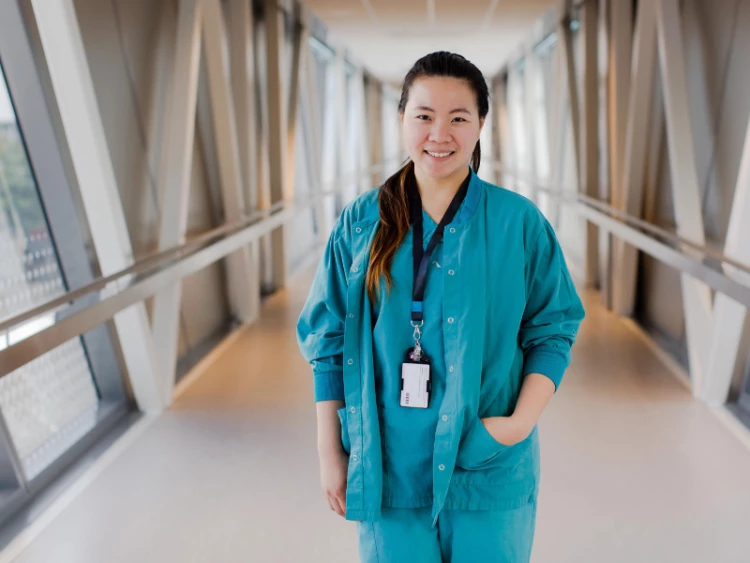
Roles & responsbilities
Plastic and Reconstructive Surgeons in New Zealand are medical specialists who diagnose and treat patients requiring restoration, correction, or improvement of body structures that are defective or damaged at birth or by injury, disease, growth, or development. Roles and responsibilities may include:
Performing specialised surgical procedures:
They perform a variety of surgeries, including:
-
Reconstructive Surgery: Restoring form and function to body parts affected by congenital defects, trauma, or disease.
-
Cosmetic Surgery: Enhancing appearance through procedures such as facelifts, rhinoplasty, and breast augmentation.
-
Microsurgery: Repairing small blood vessels and nerves, often used in reattaching severed limbs or tissue transplantation.
-
Burn Care: Treating severe burn injuries, including acute care and subsequent reconstructive procedures.
Providing emergency & trauma care
Plastic and Reconstructive Surgeons manage acute injuries, focusing on both functional restoration and aesthetic outcomes.
Overseeing postoperative & recovery care
They ensure proper healing by monitoring recovery, managing pain, and addressing complications. Surgeons also guide rehabilitation efforts, including scar management and functional recovery.
Training & mentoring future surgeons
Plastic and Reconstructive Surgeons play an active role in educating and mentoring medical students, junior doctors, and surgical trainees, ensuring the next generation of surgeons is well-trained.
Advancing surgical practices through research
They engage in clinical research to improve surgical techniques and materials, publish findings, and contribute to advancements in the field.
Maintaining safety & adhering to professional standards
Surgeons follow the safety and ethical guidelines established by New Zealand’s Medical Council to ensure all procedures meet the highest standards of care and professionalism.
Required qualitifcations & registration
Medical degree & registration:
-
Medical Degree: Complete a Bachelor of Medicine and Bachelor of Surgery (MBChB) or an equivalent qualification from a recognised medical school, typically a 5–6 year program.
-
General Registration: After obtaining your medical degree, complete a one-year internship to gain general registration with the Medical Council of New Zealand (MCNZ).
-
International Medical Graduates (IMGs): IMGs may need to pass additional examinations or assessments to achieve MCNZ registration.
Specialist training (RACS SET Programme):
-
Surgical Education and Training (SET) Program: Administered by the Royal Australasian College of Surgeons (RACS), the Plastic and Reconstructive Surgery SET program involves:
-
Basic Surgical Training: Initial training period focusing on foundational surgical skills.
-
Advanced Training in Plastic and Reconstructive Surgery: Comprehensive training covering areas such as congenital anomalies, trauma, oncological reconstruction, and complex wound management.
-
Assessments and Examinations: Trainees must successfully complete various assessments, including:
-
Generic Surgical Sciences Examination (GSSE)
-
Clinical Examination
-
Specialty-Specific Examination
-
Fellowship Examination
-
-
FRACS certification & experience:
-
Fellowship: Upon successful completion of the SET program and examinations, candidates are awarded the Fellowship of the Royal Australasian College of Surgeons (FRACS) in Plastic and Reconstructive Surgery, which is required for independent practice.
-
Clinical Experience: Trainees gain extensive experience in various plastic and reconstructive surgical procedures and settings, including intensive care units and research activities.
Ongoing professional development:
- Continuing Professional Development (CPD): Plastic and Reconstructive Surgeons are expected to engage in ongoing CPD through RACS to maintain their certification and stay updated with advancements in the field.
English proficiency & registration:
-
Language Proficiency: IMGs are required to demonstrate proficiency in English, typically through tests such as IELTS or OET, unless they have completed their primary medical qualifications in an English-speaking country.
-
Professional Registration: Surgeons must maintain registration with both the MCNZ and RACS, adhering to the professional standards and codes of conduct established by these bodies.
Information for international candidates:
Registering to work as a Senior Medical Officer in New Zealand:
To work as a Specialist in New Zealand you will need to obtain Vocational Registration with the Medical Council of New Zealand (MCNZ).
Pathways to Vocational Registration include:
1. Direct pathway to Vocational Registration:
-
If you are an International Medical Graduate (IMG) with specialist qualifications from countries with medical systems deemed equivalent to New Zealand’s (e.g., Australia, the UK, the USA, Canada, or some European countries), you may be eligible to apply directly for vocational registration without needing first to obtain general registration.
-
In this pathway, the Medical Council of New Zealand (MCNZ) will assess your specialist qualifications, clinical experience, and the medical system where you trained. If these are deemed equivalent, you can apply directly for vocational registration in your specialty.
-
This pathway allows experienced specialists to bypass general registration and the provisional general phase, which is typically required for doctors without a recognised specialist qualification.
2. Provisional Vocational Registration pathway
-
If the MCNZ determines that your qualifications and experience are largely equivalent but that you need some orientation or assessment within the New Zealand healthcare system, you may be granted provisional vocational registration.
-
This means you’ll practice in your specialty under supervision for a period, typically between 6-12 months, before being granted full vocational registration.
-
During this provisional Vocational Registration period, a specialist who practises in the same area of medicine as you will supervise you.
3. General registration pathway
-
Some IMGs who do not meet the criteria for direct vocational registration may first need to obtain general registration if their qualifications and experience are not recognized as equivalent.
-
This process to gain Vocational Registration includes:
-
A period of Provisional General Registration (with supervised practice) if necessary.
-
After obtaining General Registration, they can later apply for Vocational Registration once they have completed any further assessments or additional supervised practice required by the MCNZ.
-
Take the self-assessment
The Medical Council of New Zealand have a self-assessment tool to help you easily determine which registration pathway you should take.
Use the Medical Council's self-assessment tool
Find out more about life in New Zealand
We have a page dedicated to providing information to candidates about our recruitment process, what you need to work in New Zealand and key details about moving here.
Salary, allowances, leave, benefits & development
Salary:
Senior Medical Officers receive a base salary relative to their level of experience. This is agreed upon at the time of the job offer. There is a 15-step pay scale that SMOs continue to progress through on a yearly basis.
In New Zealand, the salary and benefits of some roles are determined by collective agreements between unions and employers. The full Senior Medical Officers collective agreement can be found on the Health New Zealand - Te Whatu Ora website here.
Additional allowances are paid on top of base salary and vary due to location and service and are often not specified in the collective agreement.
Allowances:
There are a range of additional allowances for:
-
on-call,
-
evening, night and weekend work,
-
call back,
-
job size,
-
recruitment and retention,
-
and special contribution.
Leave:
-
6 weeks of paid annual leave.
-
A minimum of 10 days of sick leave per year.
-
10 days of paid Continuing Medical Education Leave (CME), plus the ability to use annual leave tacked onto the end of your CME travel.
-
6-12 months of parental leave depending on the length of service, including 6 weeks of fully paid parental leave.
-
12 paid public holidays + time in lieu/alternative holiday if rostered on.
-
Long service leave + sabbatical opportunities.
Benefits:
- We have a modern well-developed healthcare system with access to the latest imaging technologies and diagnostic tools, enabling radiologists to provide high-quality care.
-
We place an emphasis on your work-life balance, allowing radiologists to enjoy their personal lives and engage in the abundant outdoor and recreational activities available.
-
Living in New Zealand offers a high standard of living, with access to beautiful landscapes, a safe and friendly community, and a diverse, multicultural society.
-
New Zealand provides a clear pathway to residency for medical professionals, making it easier for radiologists to settle permanently if desired.
-
The healthcare system promotes a multidisciplinary approach, allowing radiologists to work closely with other specialists and healthcare providers, fostering a collaborative and supportive work environment.
There are numerous opportunities for ongoing education and professional development, supported by a culture that values continuous learning and innovation in the medical field and access to a platform of internal educational courses.
Additional benefits include:
- An annual Continuing Medical Education (CME) allowance of NZD $16,000 (pro-rated for part-time employees).
-
Reimbursement of your registration and practising certificate fees.
-
Your professional indemnity insurance is covered by Health NZ.
-
If eligible, up to a 6% matching superannuation contribution from Health New Zealand as your employer. Find out more here.
-
A relocation package for international candidates.
Leadership and career development opportunities:
Health New Zealand encourages Senior Medical Officers to be involved in the design, implementation and performance of facilities and technology involved in the delivery of healthcare services to ensure an effective, efficient and safe workplace.
Specific opportunities vary by location and service, however, can include:
-
Support and encouragement for research and publications.
-
Mentorship opportunities for apprentice Junior Doctors/Registrars.
-
Regional and National networks allow for subspeciality research and practice.
-
Ongoing development and support for career growth with on-the-job coaching and a variety of in-house training programmes.
Vascular surgery
As a vascular surgeon in New Zealand, you will be part of a collaborative and supportive healthcare environment, working alongside multidisciplinary teams to provide specialised surgical care for patients with vascular diseases. This includes managing conditions such as aneurysms, peripheral artery disease, and carotid artery disease, utilising both open surgical and endovascular techniques.
Your expertise in both operative and non-operative treatments will play a crucial role in restoring vascular health, enhancing patient outcomes, and advancing the field of vascular surgery. Engaging in clinical research and participating in teaching opportunities will further contribute to the development of innovative treatments and the education of future healthcare professionals.
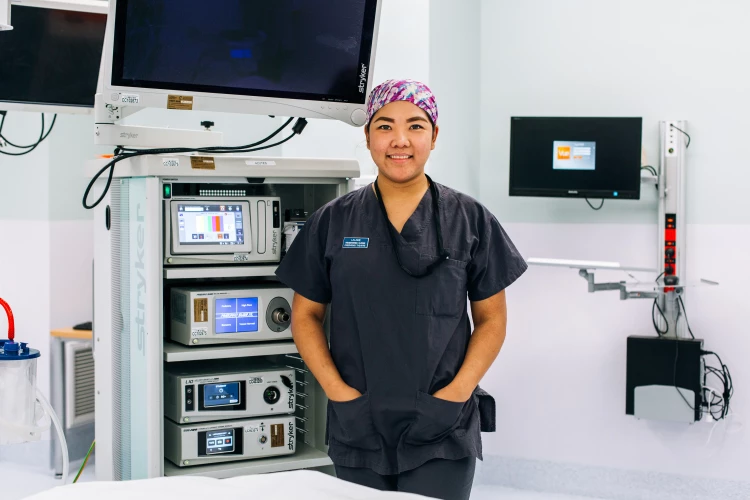
Roles & responsbilities
Vascular surgeons in New Zealand are medical specialists who diagnose and treat patients with disorders of the blood vessels (arteries and veins outside the heart and brain) and the lymphatic system. Their roles and responsibilities include:
Performing specialised surgical procedures
They perform a variety of surgeries, including:
-
Open vascular surgery: Conducting traditional surgical procedures to repair or remove diseased blood vessels.
-
Endovascular procedures: Utilising minimally invasive techniques, such as angioplasty and stent placement, to treat vascular conditions.
-
Aneurysm repair: Managing aneurysms through surgical or endovascular approaches to prevent rupture.
-
Carotid endarterectomy: Removing plaque from the carotid arteries to prevent stroke.
Providing emergency and trauma care
Vascular surgeons manage acute vascular injuries, such as traumatic arterial or venous injuries, focusing on restoring blood flow and preventing complications.
Overseeing postoperative and recovery care
They ensure proper healing by monitoring recovery, managing pain, and addressing complications. Surgeons also guide rehabilitation efforts, including lifestyle modifications and ongoing vascular health management.
Training and mentoring future surgeons
Vascular surgeons play an active role in educating and mentoring medical students, junior doctors, and surgical trainees, ensuring the next generation of surgeons is well-trained.
Advancing surgical practices through research
They engage in clinical research to improve surgical techniques and materials, publish findings, and contribute to advancements in the field.
Maintaining safety and adhering to professional standards
Surgeons follow the safety and ethical guidelines established by New Zealand’s Medical Council to ensure all procedures meet the highest standards of care and professionalism.
Required qualifications & registration
To become a Vascular Surgeon in New Zealand, the following qualifications and training are required:
Medical degree:
- MBChB or Equivalent: Complete a Bachelor of Medicine and Bachelor of Surgery (MBChB) or an equivalent qualification from a recognized medical school. This typically involves a 5- to 6-year undergraduate medical program.
General medical registration:
- Internship: After obtaining your medical degree, complete a one-year internship (house officer year) to gain general registration with the Medical Council of New Zealand (MCNZ).
Specialist training in vascular surgery:
-
Surgical Education and Training (SET) Program: Following general registration, enter the SET program in vascular surgery, administered by the Royal Australasian College of Surgeons (RACS) in collaboration with the Australian and New Zealand Society for Vascular Surgery (ANZSVS). This program typically spans five years and includes:
-
Clinical Rotations: Comprehensive training through various clinical placements to develop expertise in vascular surgery.
-
Assessments and Examinations: Successful completion of required assessments, including the Generic Surgical Sciences Examination (GSSE) and specialty-specific evaluations.
-
Fellowship with RACS:
- FRACS Certification: Upon completing the SET program and passing all necessary examinations, you will be awarded the Fellowship of the Royal Australasian College of Surgeons (FRACS) in Vascular Surgery, which is essential for independent practice in New Zealand.
Ongoing professional development:
- Continuing Professional Development (CPD): Engage in CPD activities through RACS to maintain and update your surgical skills and knowledge throughout your career.
information for international candidates:
Registering to work as a Senior Medical Officer in New Zealand:
To work as a Specialist in New Zealand you will need to obtain Vocational Registration with the Medical Council of New Zealand (MCNZ).
Pathways to Vocational Registration include:
1. Direct pathway to Vocational Registration:
-
If you are an International Medical Graduate (IMG) with specialist qualifications from countries with medical systems deemed equivalent to New Zealand’s (e.g., Australia, the UK, the USA, Canada, or some European countries), you may be eligible to apply directly for vocational registration without needing first to obtain general registration.
-
In this pathway, the Medical Council of New Zealand (MCNZ) will assess your specialist qualifications, clinical experience, and the medical system where you trained. If these are deemed equivalent, you can apply directly for vocational registration in your specialty.
-
This pathway allows experienced specialists to bypass general registration and the provisional general phase, which is typically required for doctors without a recognised specialist qualification.
2. Provisional Vocational Registration pathway
-
If the MCNZ determines that your qualifications and experience are largely equivalent but that you need some orientation or assessment within the New Zealand healthcare system, you may be granted provisional vocational registration.
-
This means you’ll practice in your specialty under supervision for a period, typically between 6-12 months, before being granted full vocational registration.
-
During this provisional Vocational Registration period, a specialist who practises in the same area of medicine as you will supervise you.
3. General registration pathway
-
Some IMGs who do not meet the criteria for direct vocational registration may first need to obtain general registration if their qualifications and experience are not recognized as equivalent.
-
This process to gain Vocational Registration includes:
-
A period of Provisional General Registration (with supervised practice) if necessary.
-
After obtaining General Registration, they can later apply for Vocational Registration once they have completed any further assessments or additional supervised practice required by the MCNZ.
-
Take the self-assessment
The Medical Council of New Zealand have a self-assessment tool to help you easily determine which registration pathway you should take.
Use the Medical Council's self-assessment tool
Find out more about life in New Zealand
We have a page dedicated to providing information to candidates about our recruitment process, what you need to work in New Zealand and key details about moving here.
Salary, allowances, leave, benefits & development
Salary:
Senior Medical Officers receive a base salary relative to their level of experience. This is agreed upon at the time of the job offer. There is a 15-step pay scale that SMOs continue to progress through on a yearly basis.
In New Zealand, the salary and benefits of some roles are determined by collective agreements between unions and employers. The full Senior Medical Officers collective agreement can be found on the Health New Zealand - Te Whatu Ora website here.
Additional allowances are paid on top of base salary and vary due to location and service and are often not specified in the collective agreement.
Allowances:
There are a range of additional allowances for:
-
on-call,
-
evening, night and weekend work,
-
call back,
-
job size,
-
recruitment and retention,
-
and special contribution.
Leave:
-
6 weeks of paid annual leave.
-
A minimum of 10 days of sick leave per year.
-
10 days of paid Continuing Medical Education Leave (CME), plus the ability to use annual leave tacked onto the end of your CME travel.
-
6-12 months of parental leave depending on the length of service, including 6 weeks of fully paid parental leave.
-
12 paid public holidays + time in lieu/alternative holiday if rostered on.
-
Long service leave + sabbatical opportunities.
Benefits:
- We have a modern well-developed healthcare system with access to the latest imaging technologies and diagnostic tools, enabling radiologists to provide high-quality care.
-
We place an emphasis on your work-life balance, allowing radiologists to enjoy their personal lives and engage in the abundant outdoor and recreational activities available.
-
Living in New Zealand offers a high standard of living, with access to beautiful landscapes, a safe and friendly community, and a diverse, multicultural society.
-
New Zealand provides a clear pathway to residency for medical professionals, making it easier for radiologists to settle permanently if desired.
-
The healthcare system promotes a multidisciplinary approach, allowing radiologists to work closely with other specialists and healthcare providers, fostering a collaborative and supportive work environment.
There are numerous opportunities for ongoing education and professional development, supported by a culture that values continuous learning and innovation in the medical field and access to a platform of internal educational courses.
Additional benefits include:
- An annual Continuing Medical Education (CME) allowance of NZD $16,000 (pro-rated for part-time employees).
-
Reimbursement of your registration and practising certificate fees.
-
Your professional indemnity insurance is covered by Health NZ.
-
If eligible, up to a 6% matching superannuation contribution from Health New Zealand as your employer. Find out more here.
-
A relocation package for international candidates.
Leadership and career development opportunities:
Health New Zealand encourages Senior Medical Officers to be involved in the design, implementation and performance of facilities and technology involved in the delivery of healthcare services to ensure an effective, efficient and safe workplace.
Specific opportunities vary by location and service, however, can include:
-
Support and encouragement for research and publications.
-
Mentorship opportunities for apprentice Junior Doctors/Registrars.
-
Regional and National networks allow for subspeciality research and practice.
-
Ongoing development and support for career growth with on-the-job coaching and a variety of in-house training programmes.
Our application process
Working at Health New Zealand
'Te Whatu Ora' translates from our indigenous Māori language to 'the weaving of wellness'; which is what we are all about in our holistic delivery of world-class care for the health and wellbeing of the 5 million Kiwis in our communities.
Health New Zealand has an open and non-hierarchical approach to improving outcomes for our patients. Our multi-disciplinary collaborative way of working fosters a positive work environment where all members of our team feel supported and empowered.
Our commitment to you
We are dedicated to building a team that is representative of the communities that we are serving. We are committed to supporting health equity in our communities. Our kaimahi (staff) thrives on the diversity and inclusion of all perspectives and cultures, and we welcome individuals from all backgrounds and lived experiences.
Health New Zealand has programmes and facilities available to both protect and improve our teams’ physical, mental and emotional health and wellbeing. We know that you do your best work when you’re feeling your best, so it’s important to us that this is a priority.
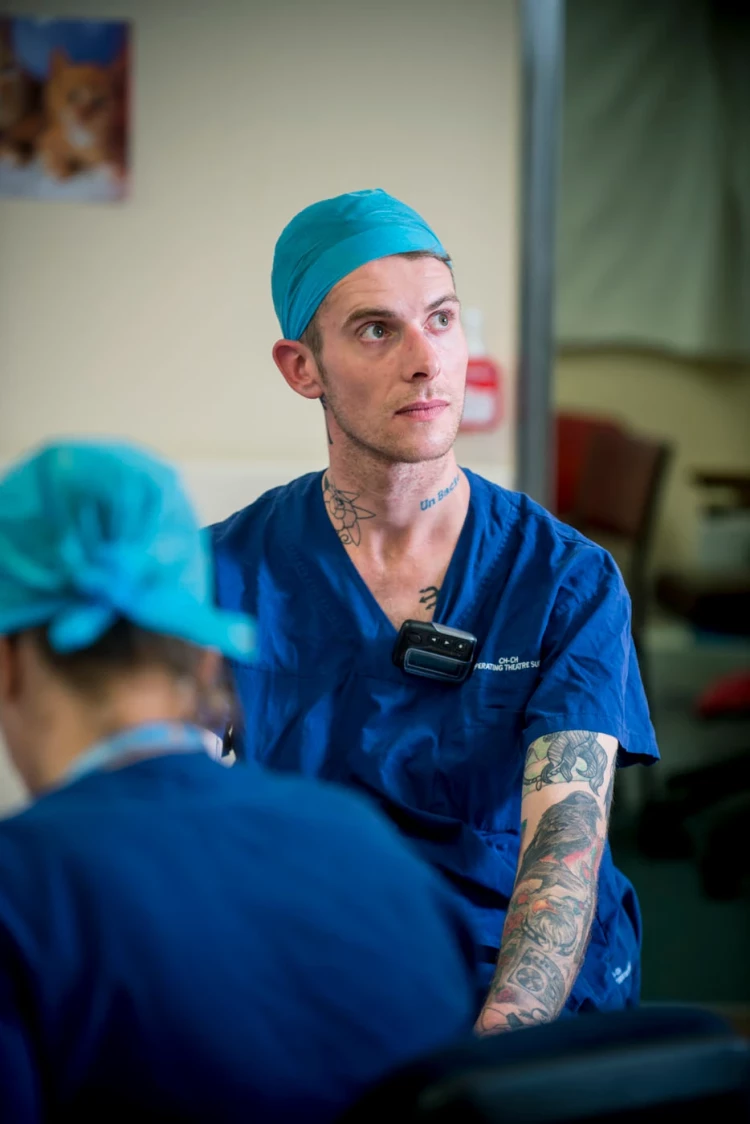
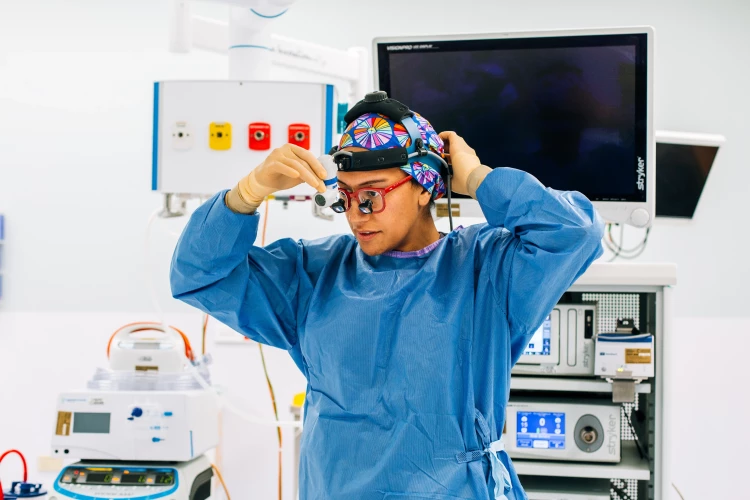
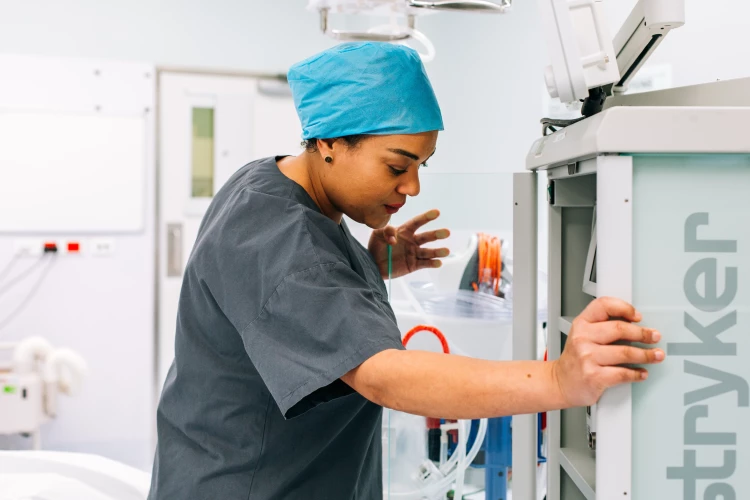
Looking to move to New Zealand to work as a Surgical Specialist?
Great news! Surgical Specialists (SMOs) are on Tier 1 of New Zealand's Green List which means you are eligible for a fast-tracked Straight to Residence Visa. This means you and your family can apply for New Zealand residency before you arrive, provided you have a job offer from an accredited employer, like us!

|
Photo location: Auckland City |
Explore Aotearoa
New Zealand - Aotearoa has been in the top 5 countries in the Global Peace Index every year since it launched in 2009 and has a broad range of places to call home, from the bustling metropolis of our main centres to the easy-going vibe of our coastal or rural communities.
Find out more information about what part of our beautiful country is the best fit for you.

Te Tai Tokerau Northland
Population: 194,600
Northland is a beautiful and diverse region of Aotearoa, New Zealand with plenty to offer visitors. Whether you're interested in water sports, historic sites, natural beauty or ancient Kauri trees—Northland has it all!
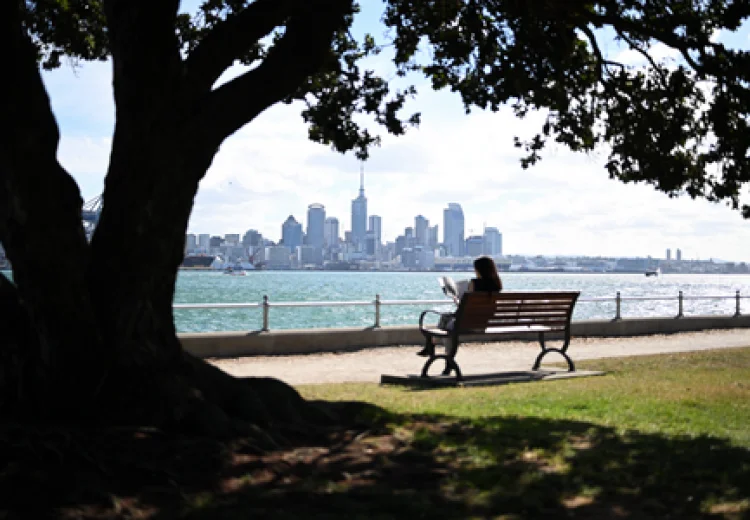
Waitematā
Population: 650,000
Waitematā is the largest and one of the most rapidly growing Districts serving the largest population of all Health New Zealand. Waitematā offers a balanced lifestyle that combines the convenience of city living with the natural beauty and community spirit of suburban life.

Te Toka Tumai Auckland
Population: 500,000
Auckland the "City of Sails" is Aotearoa New Zealand’s largest city and commercial hub. It’s where metropolitan sophistication meets breathtaking natural beauty. Auckland is filled with a variety of warm and welcoming communities, packed with new places to explore.

Counties Manukau
Population: 500,000
Counties Manukau is a vibrant place where there's never a dull moment! Living and working here ensures you're always close to amenities, events and nature. You'll never run out of places to visit or things to do.
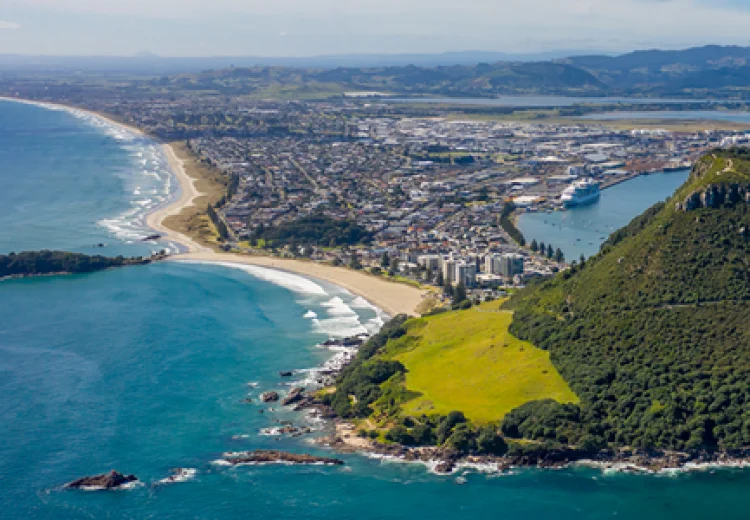
Hauora a Toi Bay of Plenty
Population: 255,110
The Bay of Plenty is a place of beautiful harbours, long surf beaches and an easygoing lifestyle. We showcase the perfect place to explore a wide range of nature-based pursuits – this gives the people of the Bay of Plenty the chance for a better work-life balance.

Waikato
Population: 425,000
The Waikato region is known for its natural beauty, rich Māori culture, and agricultural heritage with something to offer visitors of all interests.
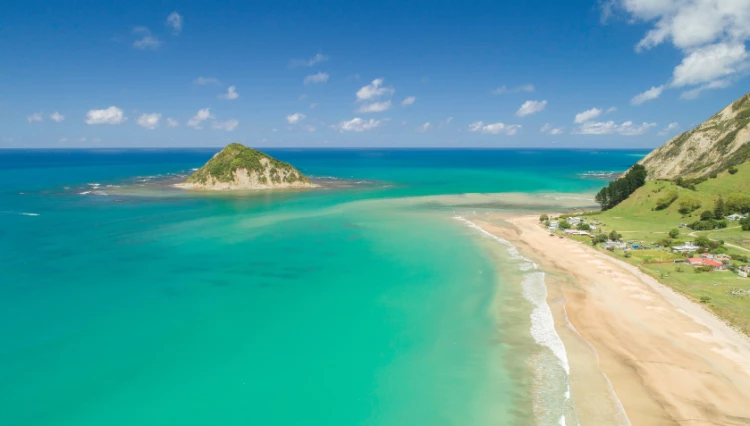
Tairāwhiti Gisborne
Population: 48,000
In family-friendly Tairāwhiti, you will experience an easier pace to life that allows you to pause, reflect and enjoy a true work-life balance. Gisborne’s relative isolation is its charm, surrounded by beaches & nature - don't worry though! Larger cities are only a quick flight away.

Lakes
Population: 110,000
The Lakes District is well known for its geothermal activity and natural hot springs. The area is located in the central North Island and is home to many geothermal attractions, such as geysers, hot mud pools, and steam vents. Visitors can also relax in the region's natural hot springs, which are believed to have healing properties.

Taranaki
Population: 130,000
Taranaki is a magical place with a majestic mountain at its heart, including the rugged coastline that's world-renowned for its surf. Its residents' love of art and culture, cafes and outdoor living mean it's also fantastic to work—and play!

Te Matau a Māui Hawke's Bay
Population: 180,000
Known for its world-class wineries, stunning beaches and temperate climate, Hawke’s Bay boasts a lifestyle that is unmatched. The region is a popular destination for food and wine tourism, hiking, cycling and cultural events such as the annual Art Deco festival.

Whanganui
Population: 65,000
Whanganui has something for everyone. Our centrally located region offers access to outdoor activities such as kayaking, skiing, surfing, tramping, cycling, fishing and hunting. Nestled between two snow-capped mountains, on the banks of Whanganui River there is always plenty to do and explore.
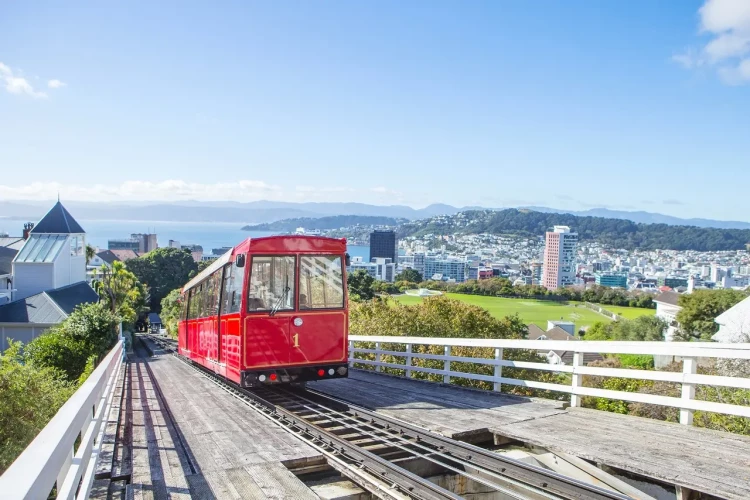
Capital, Coast and Hutt Valley
Population: 445,000
Wellington, the capital city of Aotearoa New Zealand, is a bustling and diverse hub of culture and cosmopolitanism, renowned for its lively cafés, restaurants, and internationally acclaimed sporting and cultural events, all set against the stunning backdrop of a natural harbour. To the north of Wellington lie the regions of Porirua, Kapiti, and Hutt Valley.
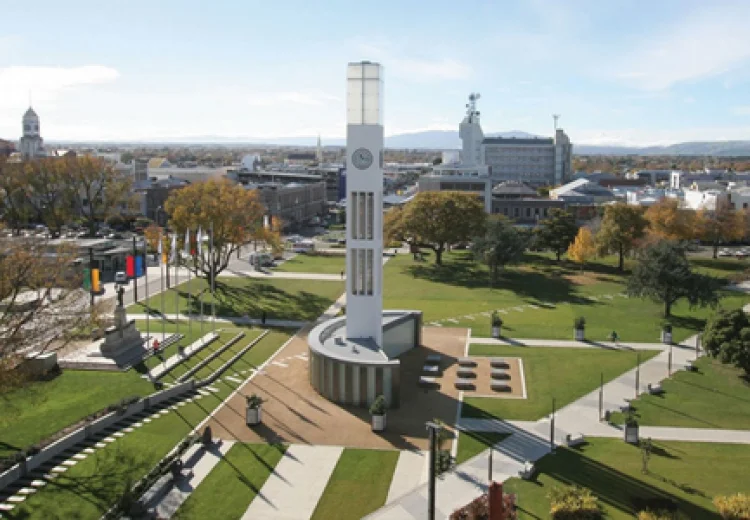
Te Pae Hauora o Ruahine o Tararua MidCentral
Population: 190,000
Get the best of both worlds - the perfect blend of rural and city living with the mountains, city and sea at your fingertips.
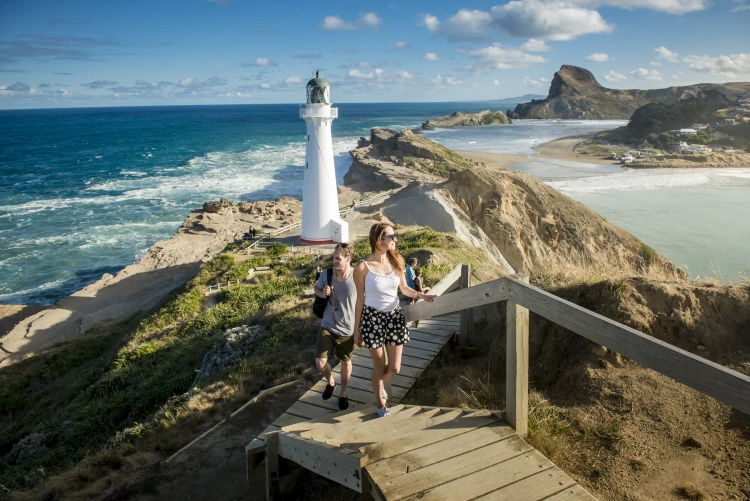
Wairarapa
Population: 48,000
From rugged coastlines, boutique vineyards to lush forests, Wairarapa is a slice of paradise for those who love the outdoors and seek a peaceful environment to recharge after a rewarding day's work.

Nelson Marlborough
Population: 150,000
Nelson Marlborough has been dubbed the artistic capital with a thriving urban centre and one of New Zealand's sunniest regions.

Te Tai o Poutini West Coast
Population: 32,000
Te Tai o Poutini West Coast has views of both the mountain ranges and the ocean! It is an untamed natural wilderness of beautiful rivers and rainforests, glaciers and geological treasures.
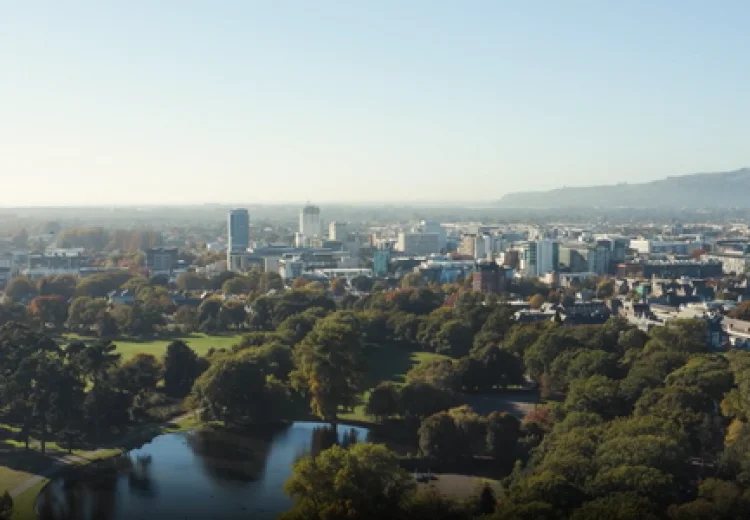
Waitaha Canterbury
Population: 600,000
The Canterbury region is a great place to live and work due to its natural beauty, vibrant economy, cultural diversity, strong community, and high quality of life.
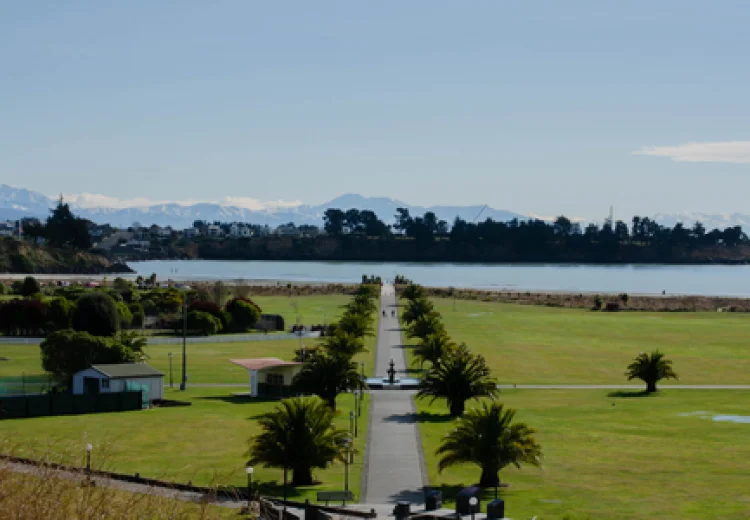
South Canterbury
Population: 62,000
The South Canterbury District is an area of stunning beauty with great lifestyle opportunities, a safe and welcoming family-friendly environment, affordable living, excellent educational opportunities and a wide range of cultural and sporting facilities.
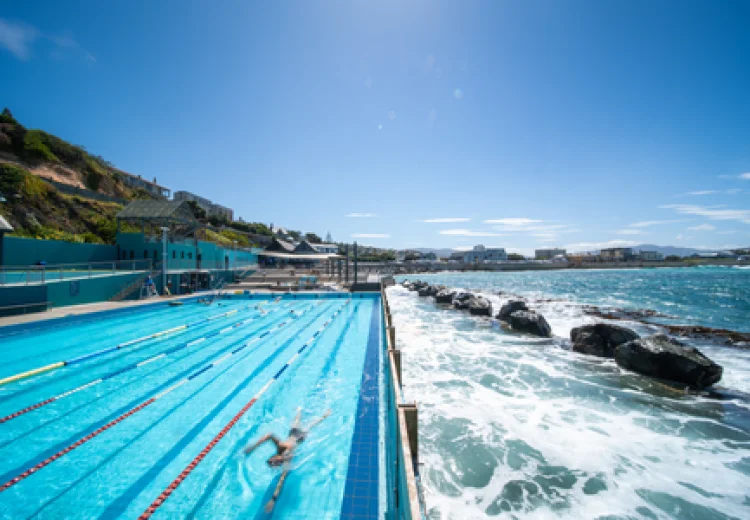
Southern
Population: 350,000
Well known for its beautiful natural scenery, which includes towering mountains, stunning fjords, majestic glaciers, and crystal-clear lakes. The region is also famous for its friendly communities, charming towns, and vibrant cities such as Dunedin and Invercargill.
Webinar: Registration for Senior Medical Officers
Health New Zealand’s Health Immigration Service, Kiwi Health Jobs, Immigration NZ and the Medical Council of New Zealand have run joint webinars to take you through the different steps towards starting a new adventure in New Zealand - Aotearoa.
Learn more about moving to our beautiful country, directly from the people who process your applications.
We'd love to help, reach out to us!
Moving to Aotearoa New Zealand is a fantastic opportunity and a big step, and we're here for you! Our dedicated team is here to provide guidance and support throughout your journey, so don't hesitate to reach out if you have any questions.


